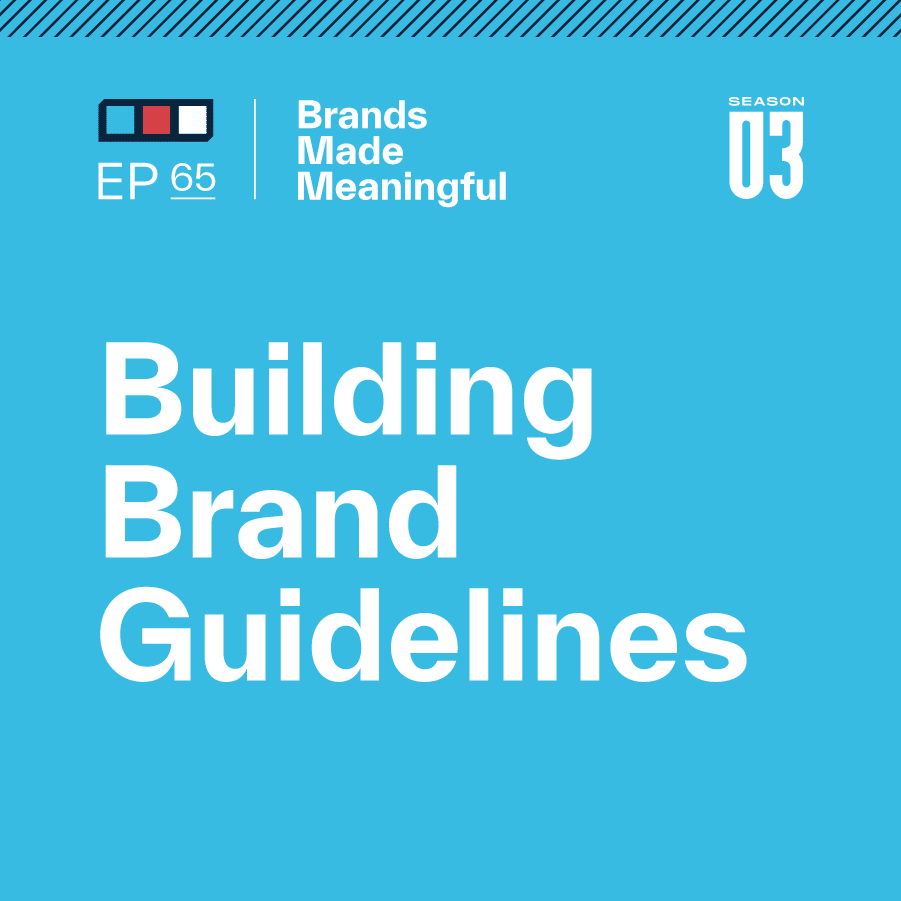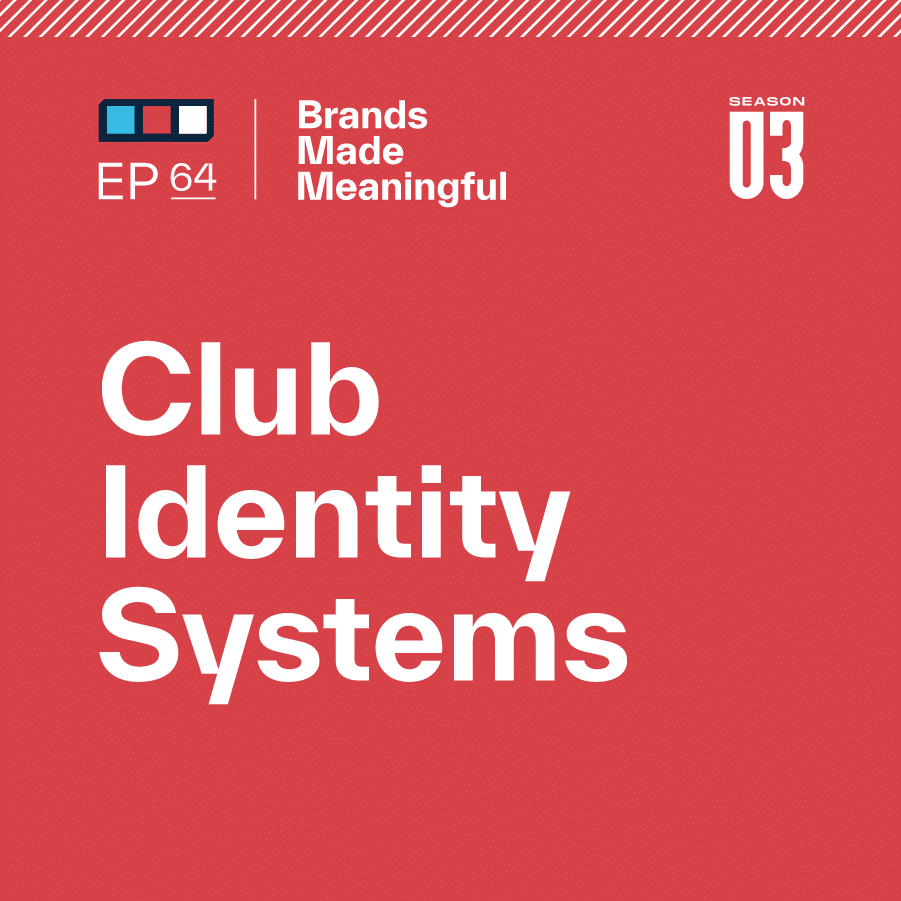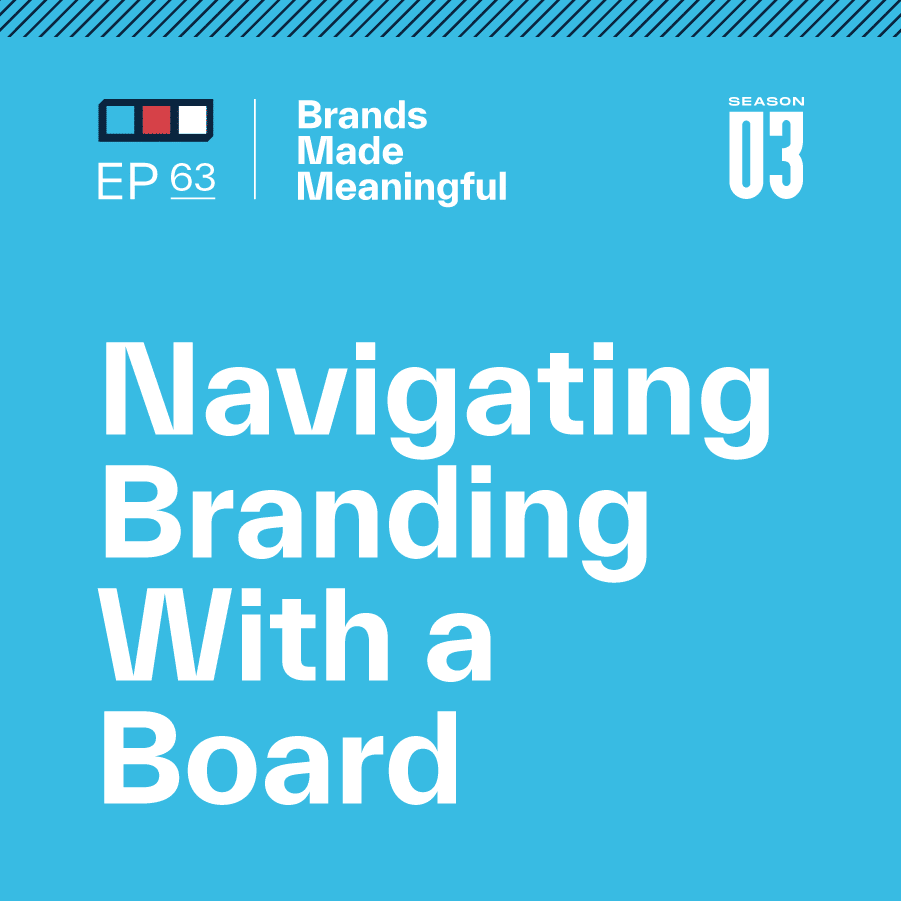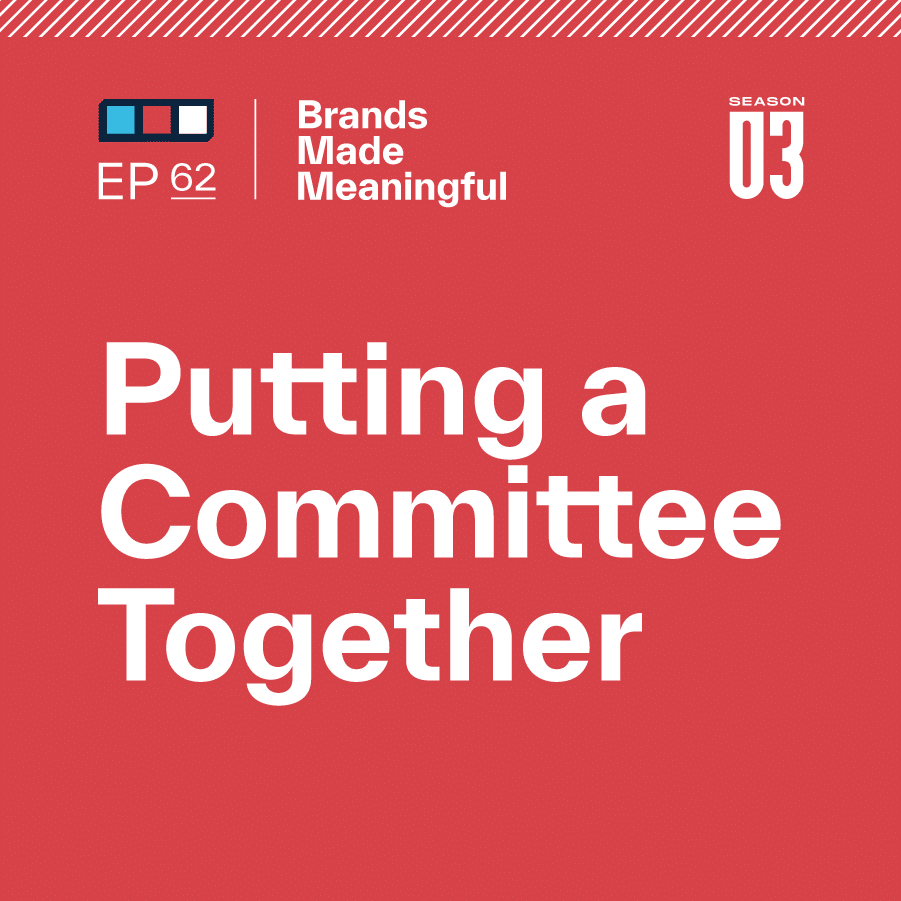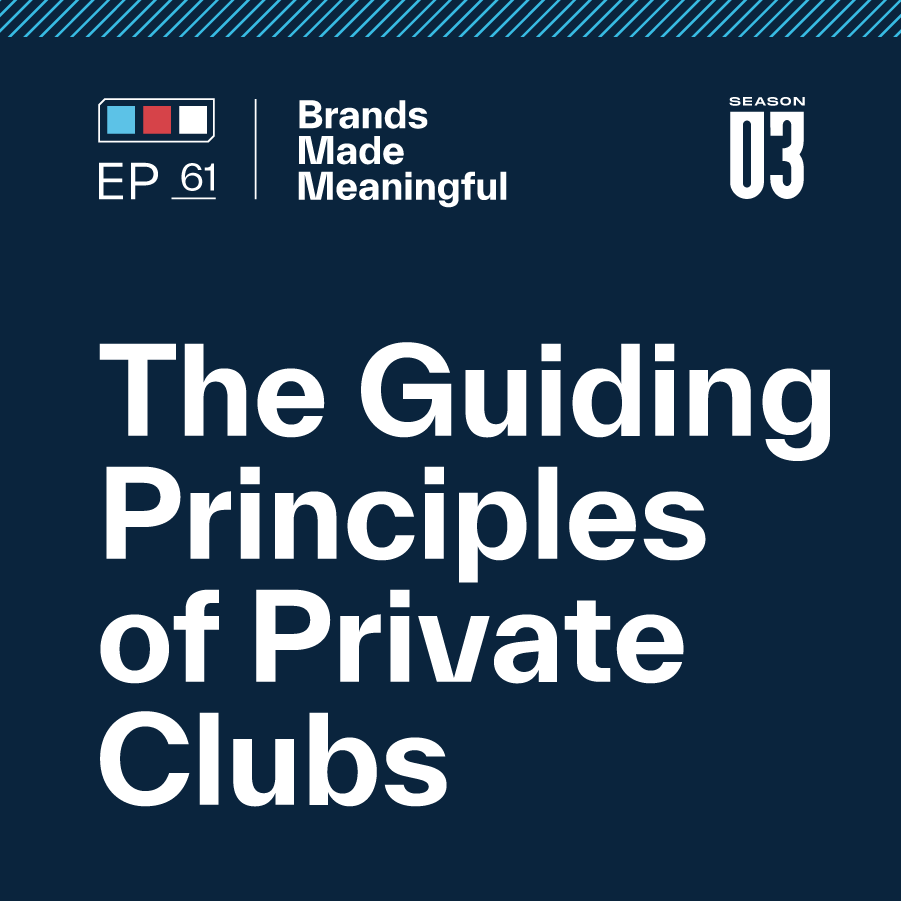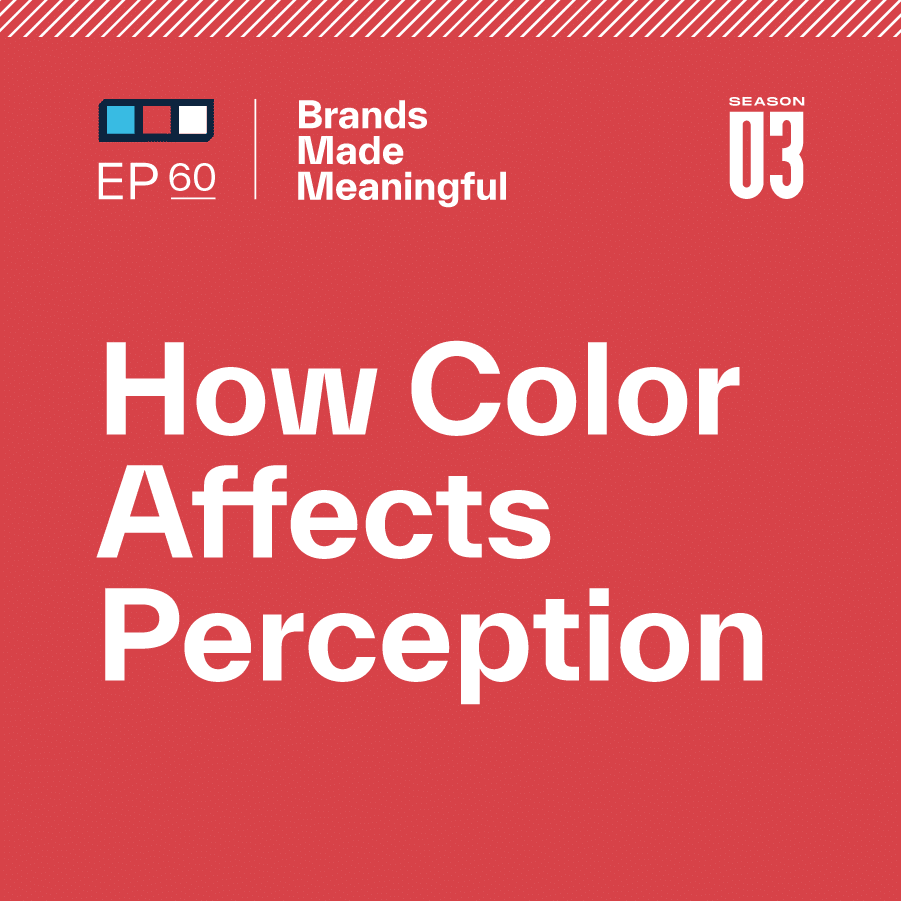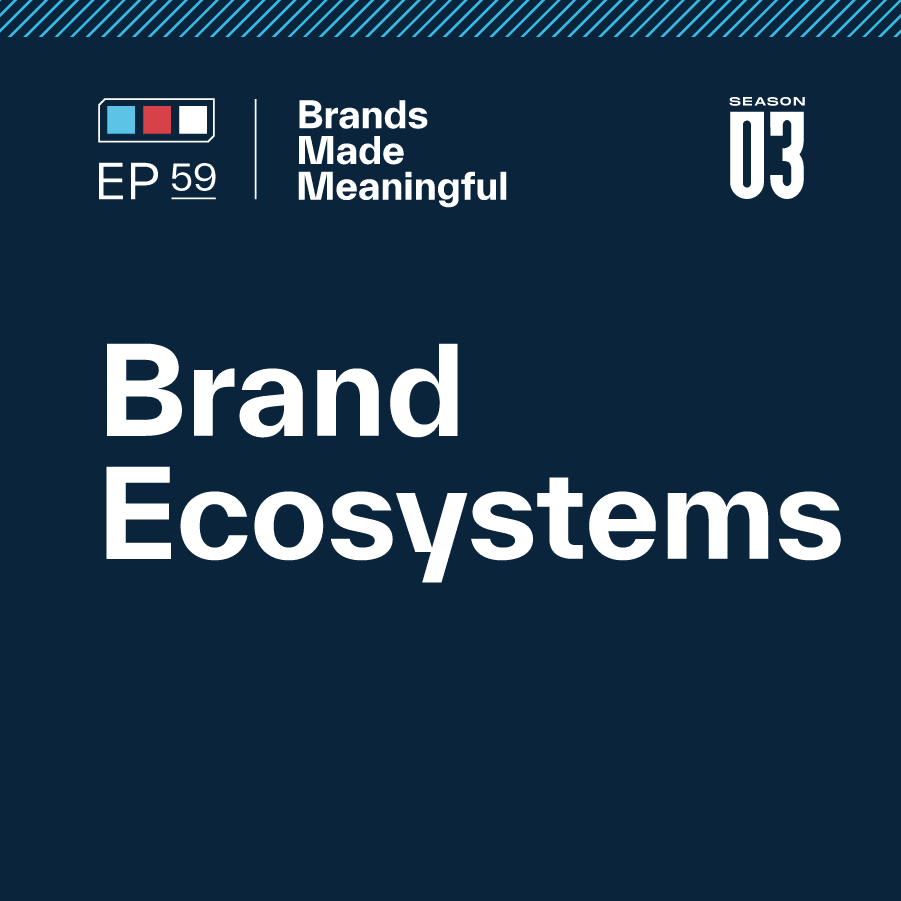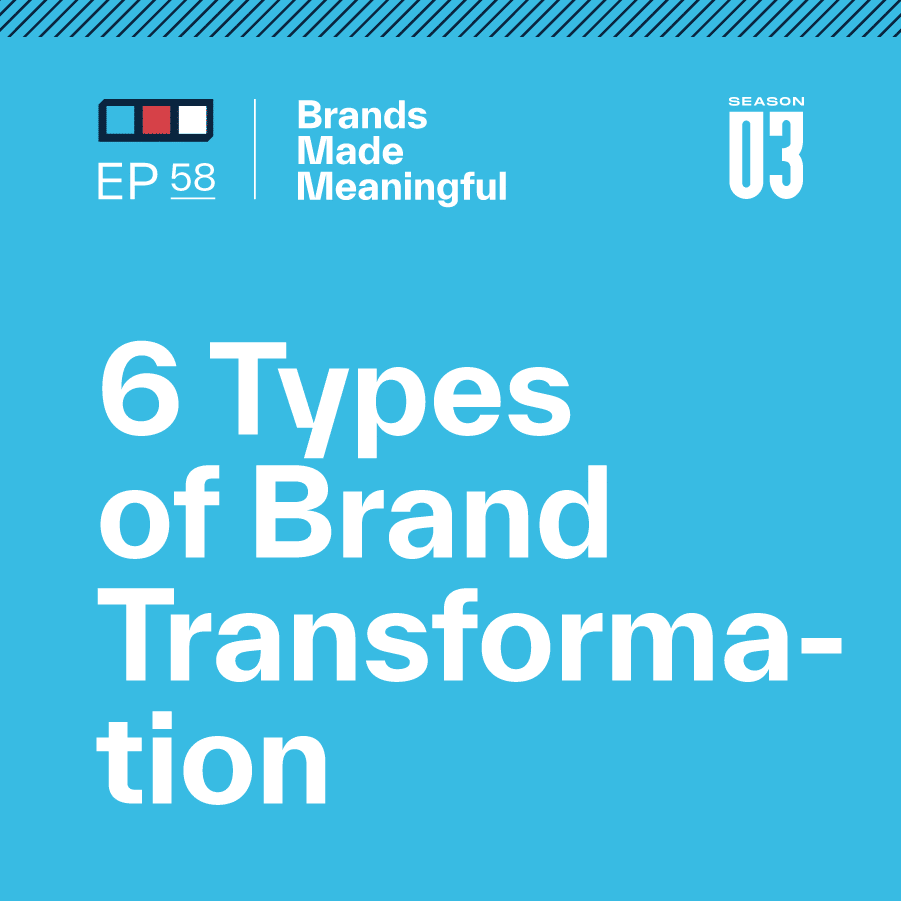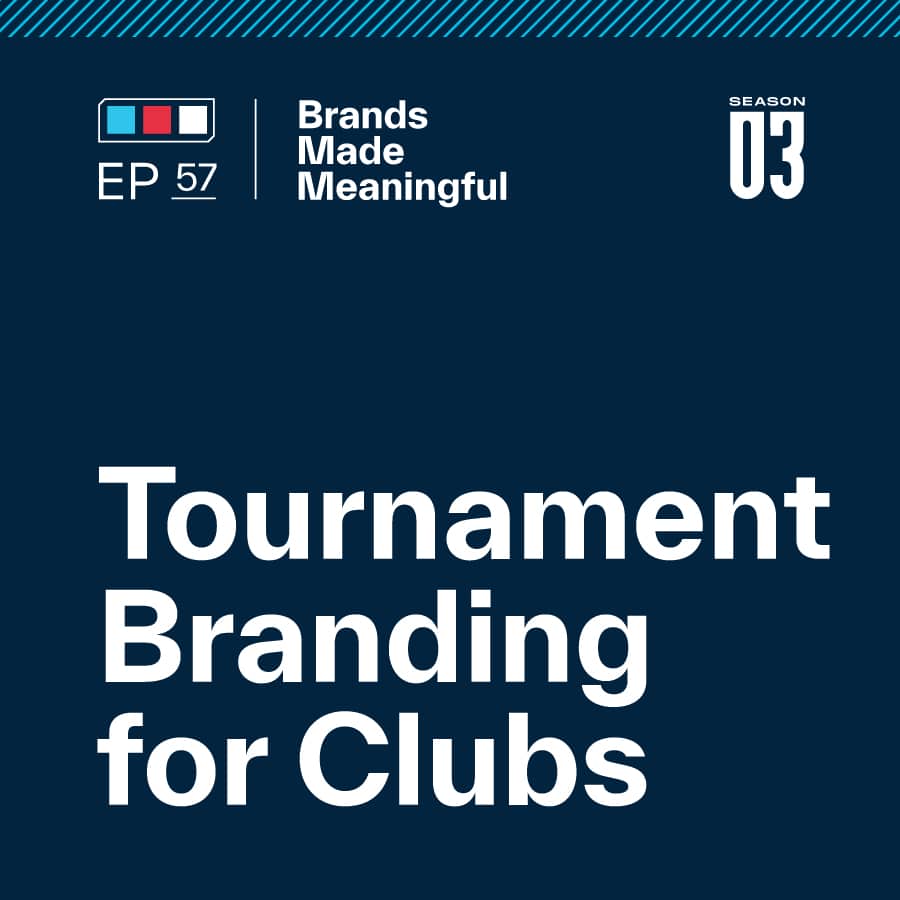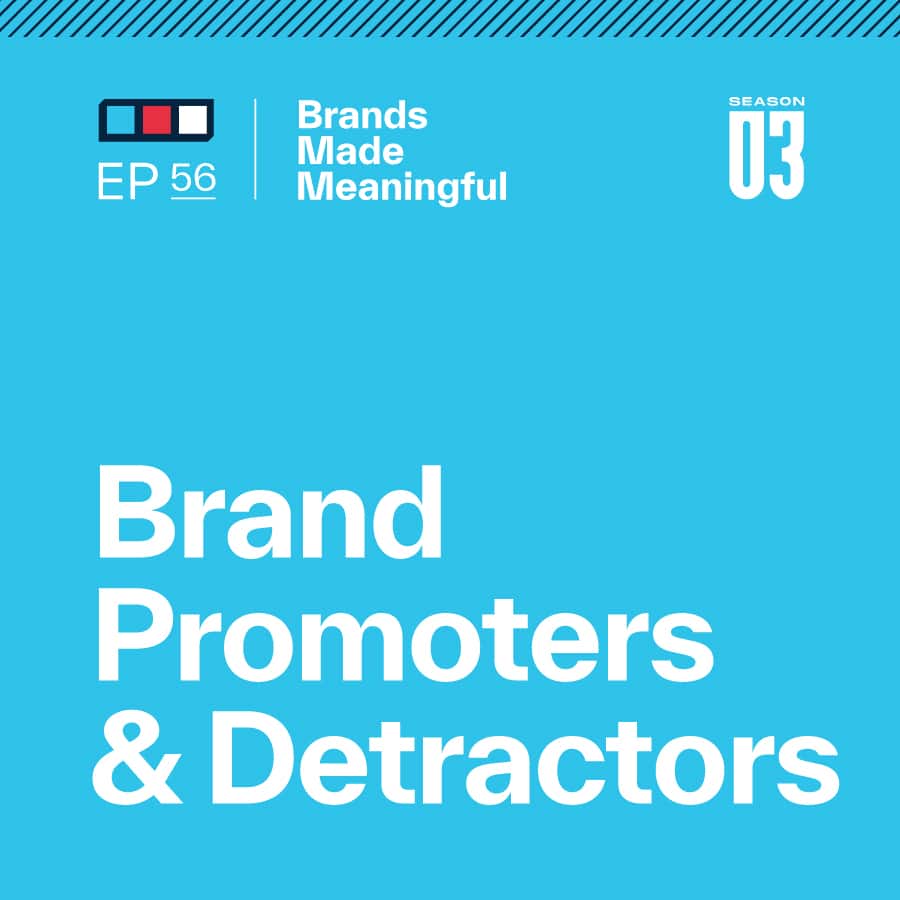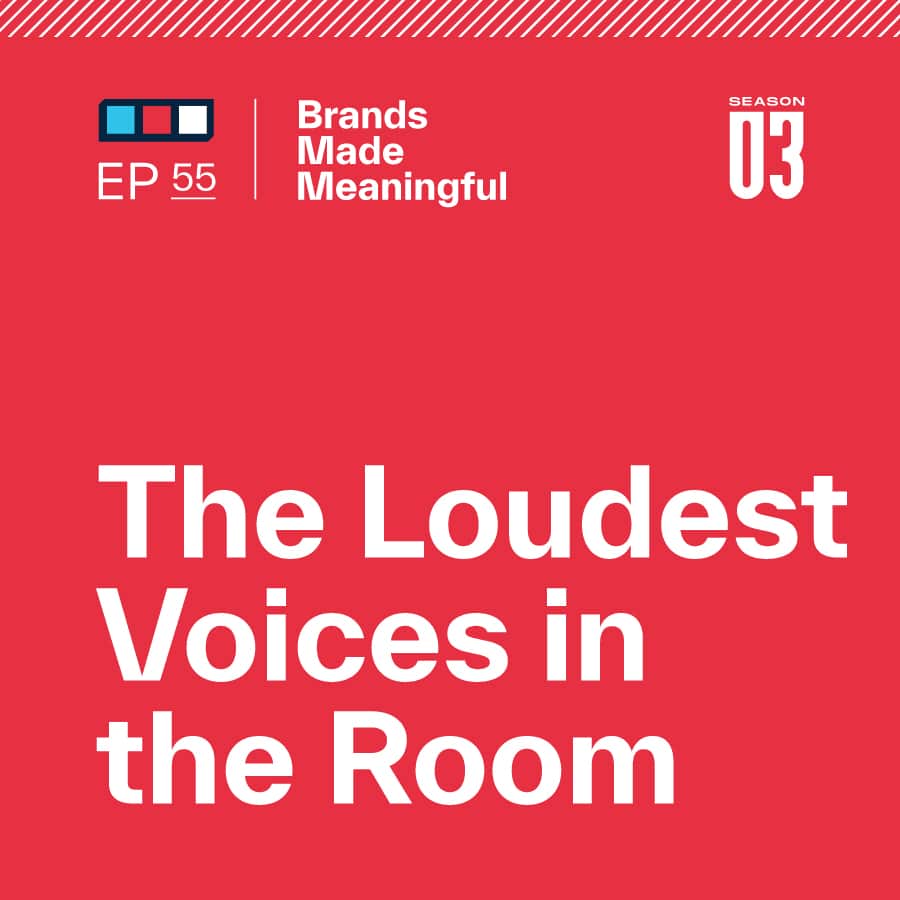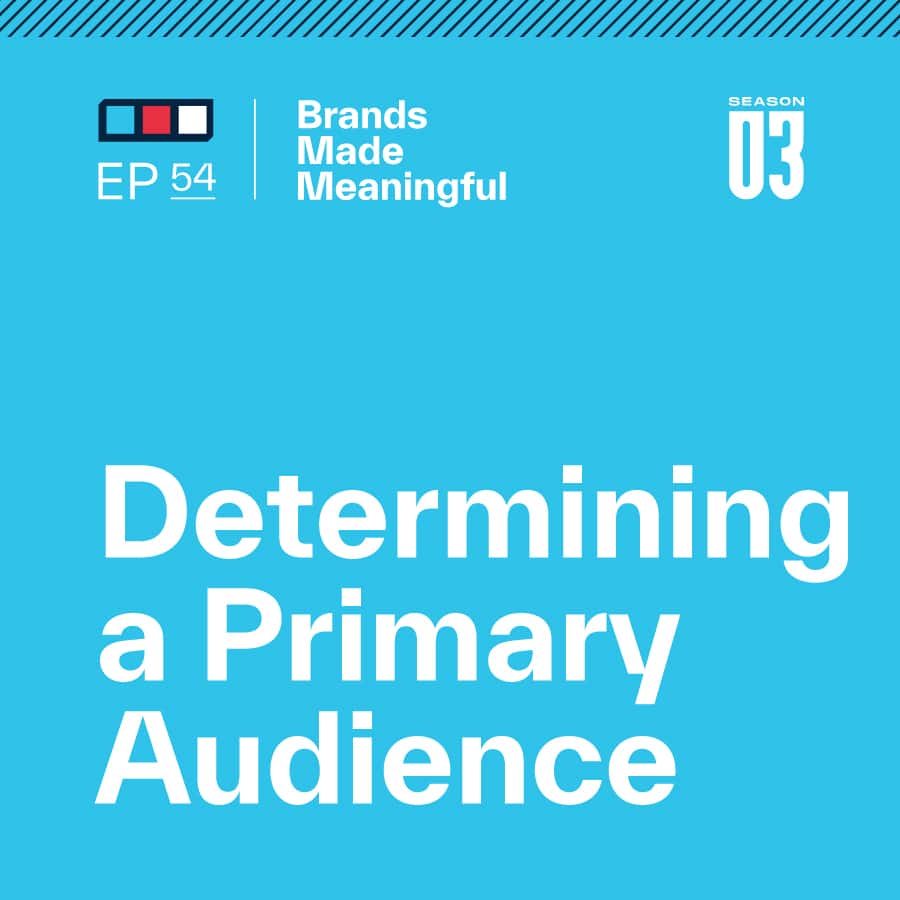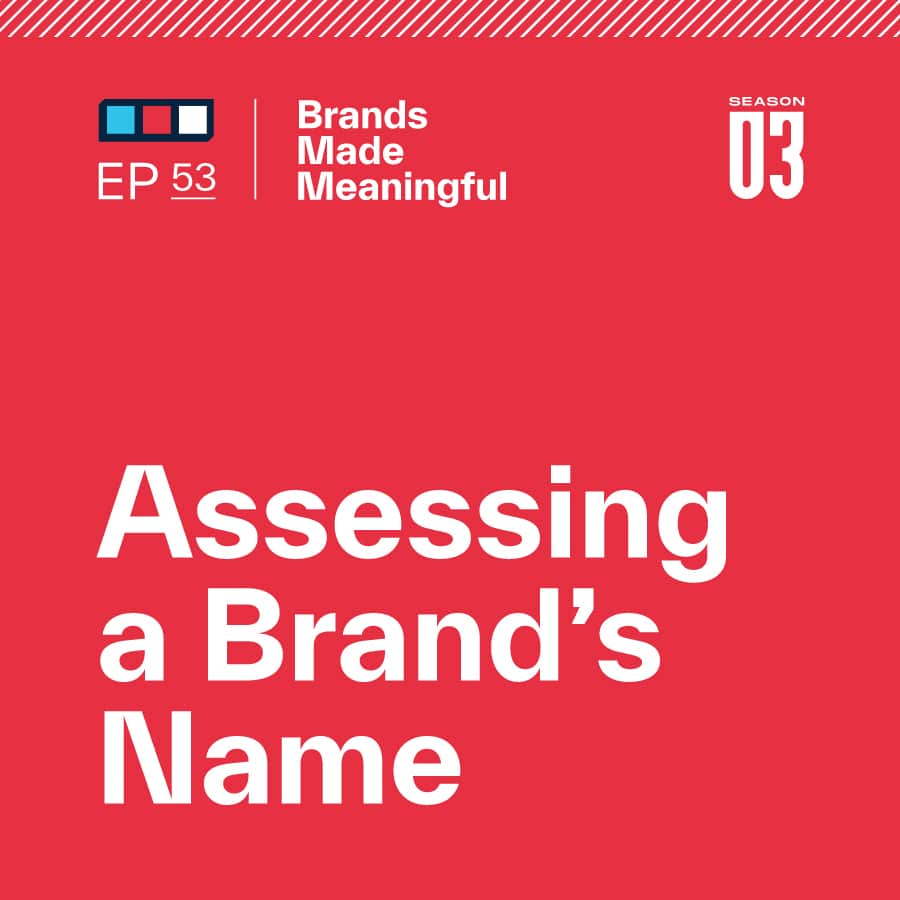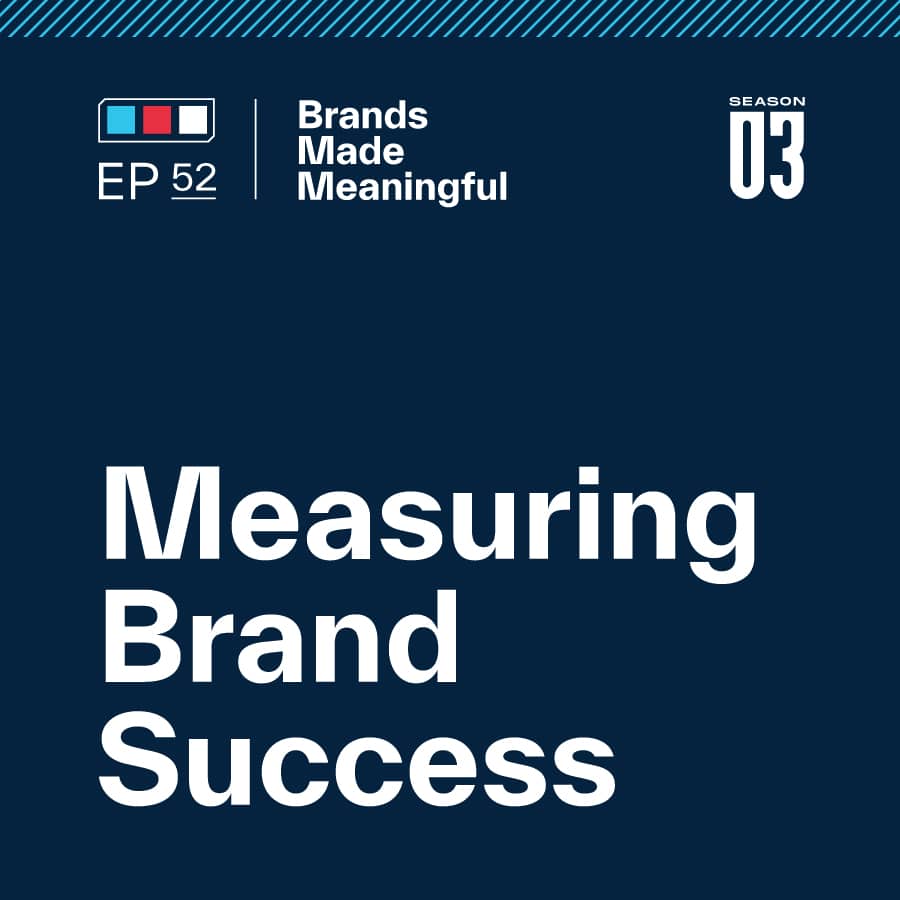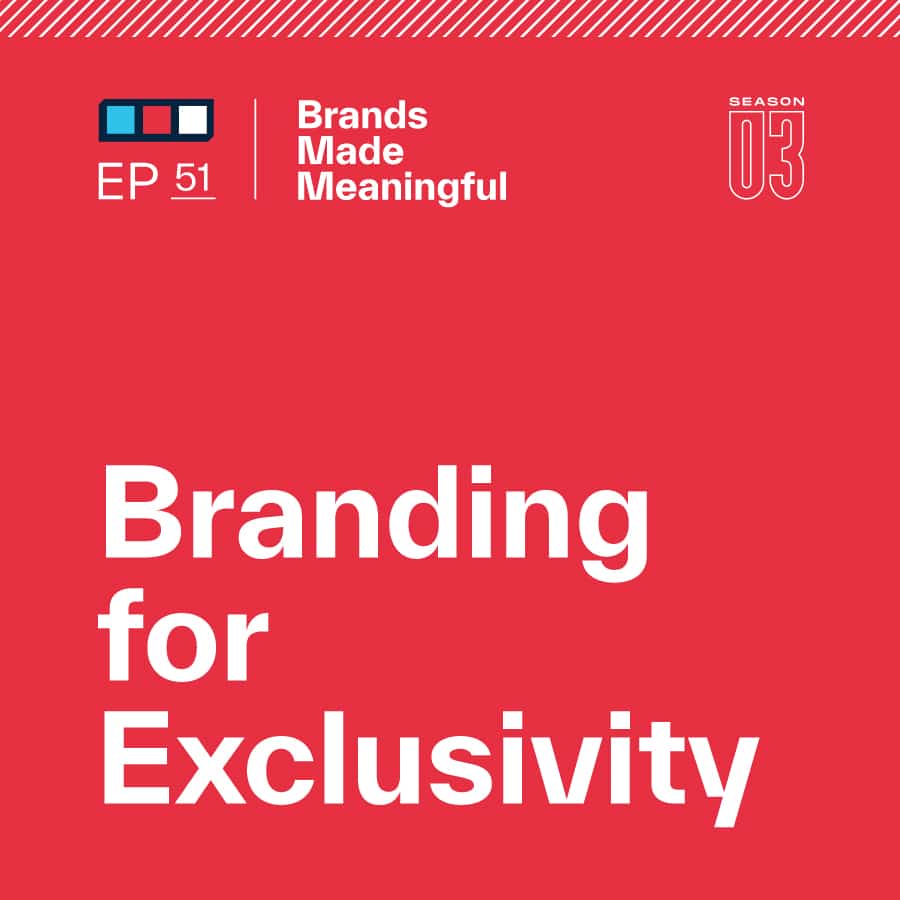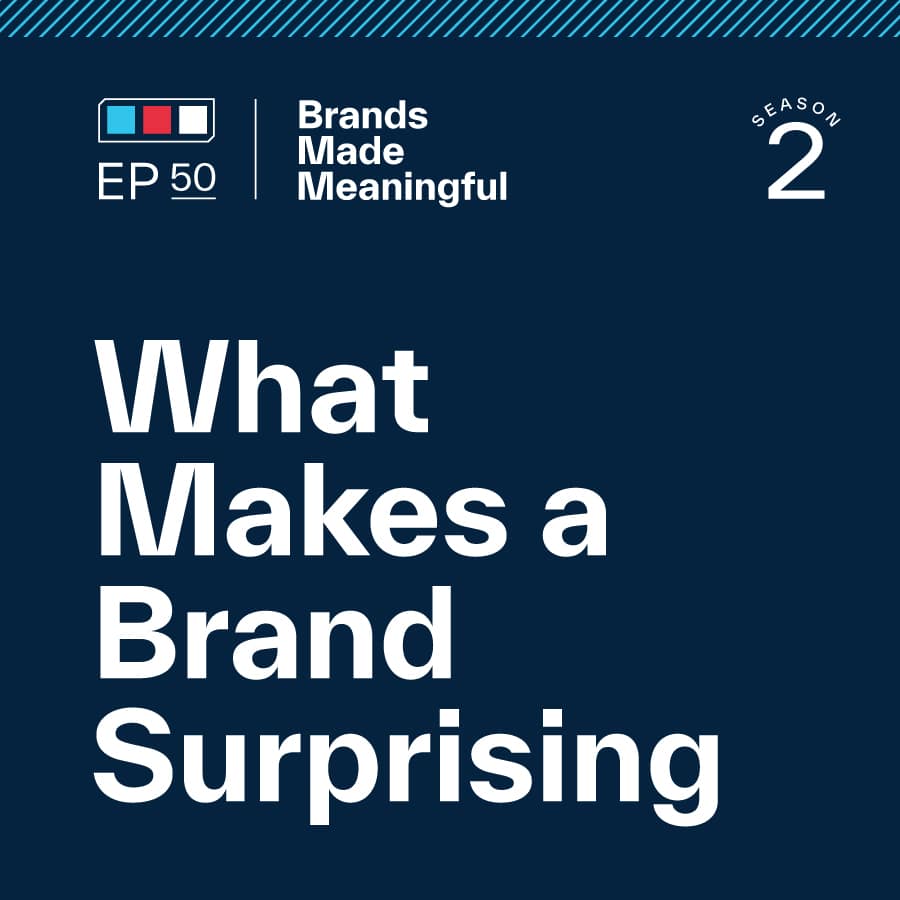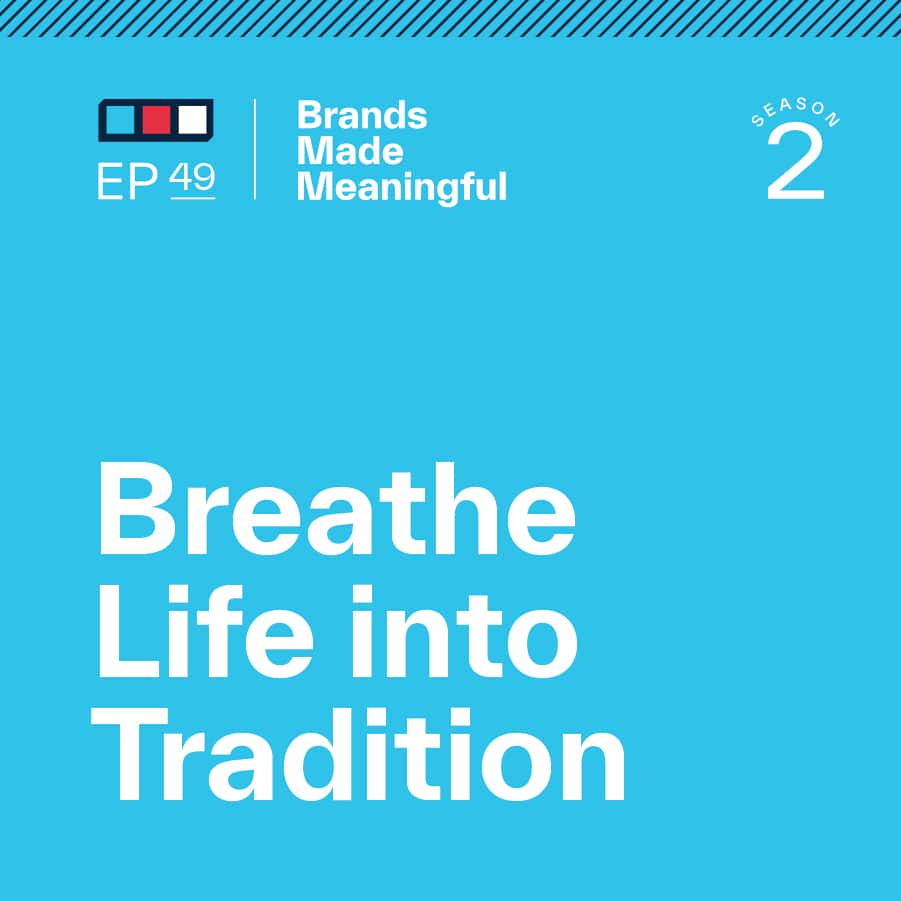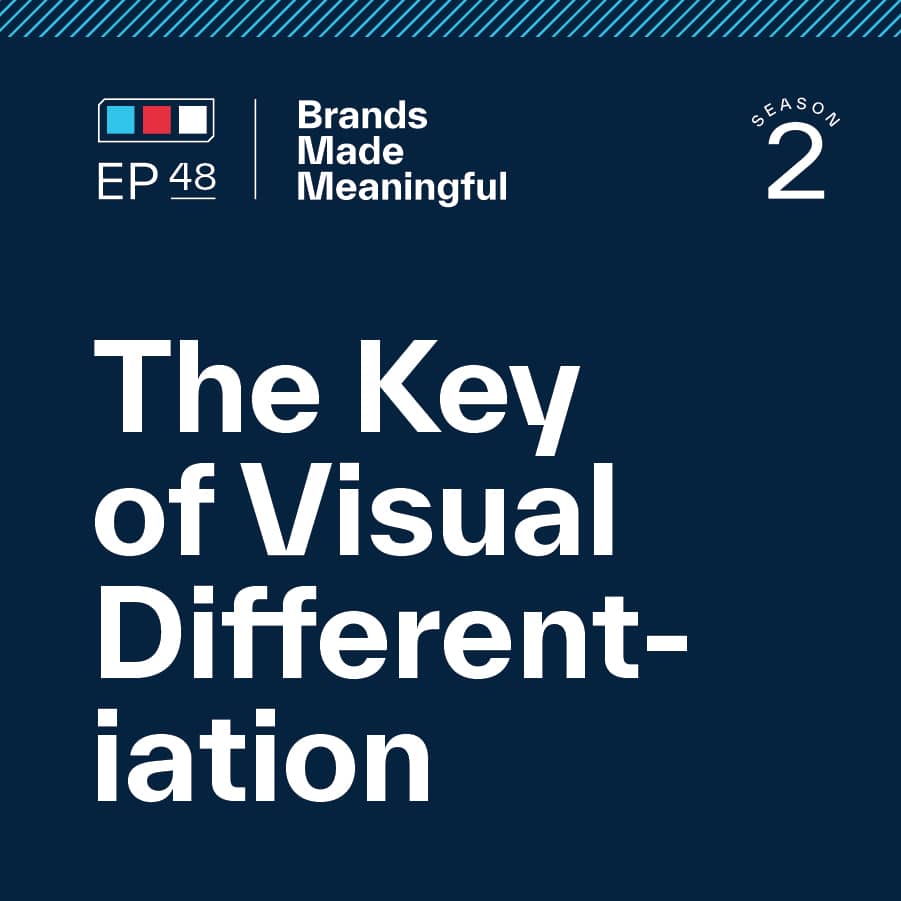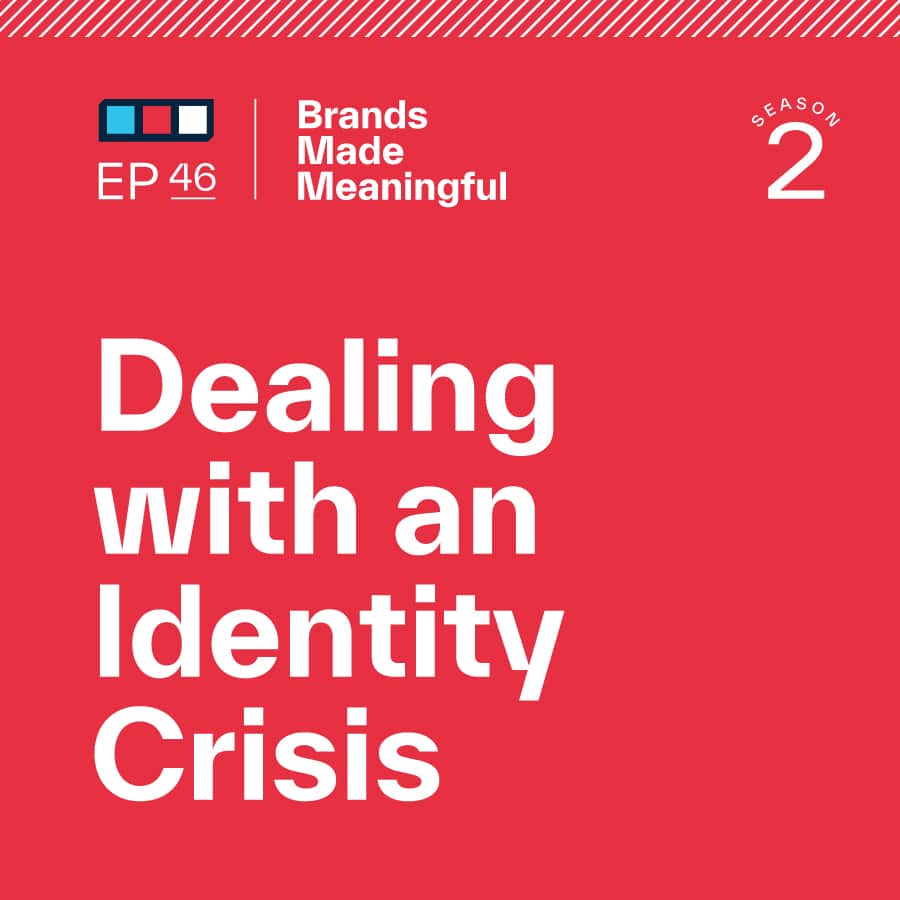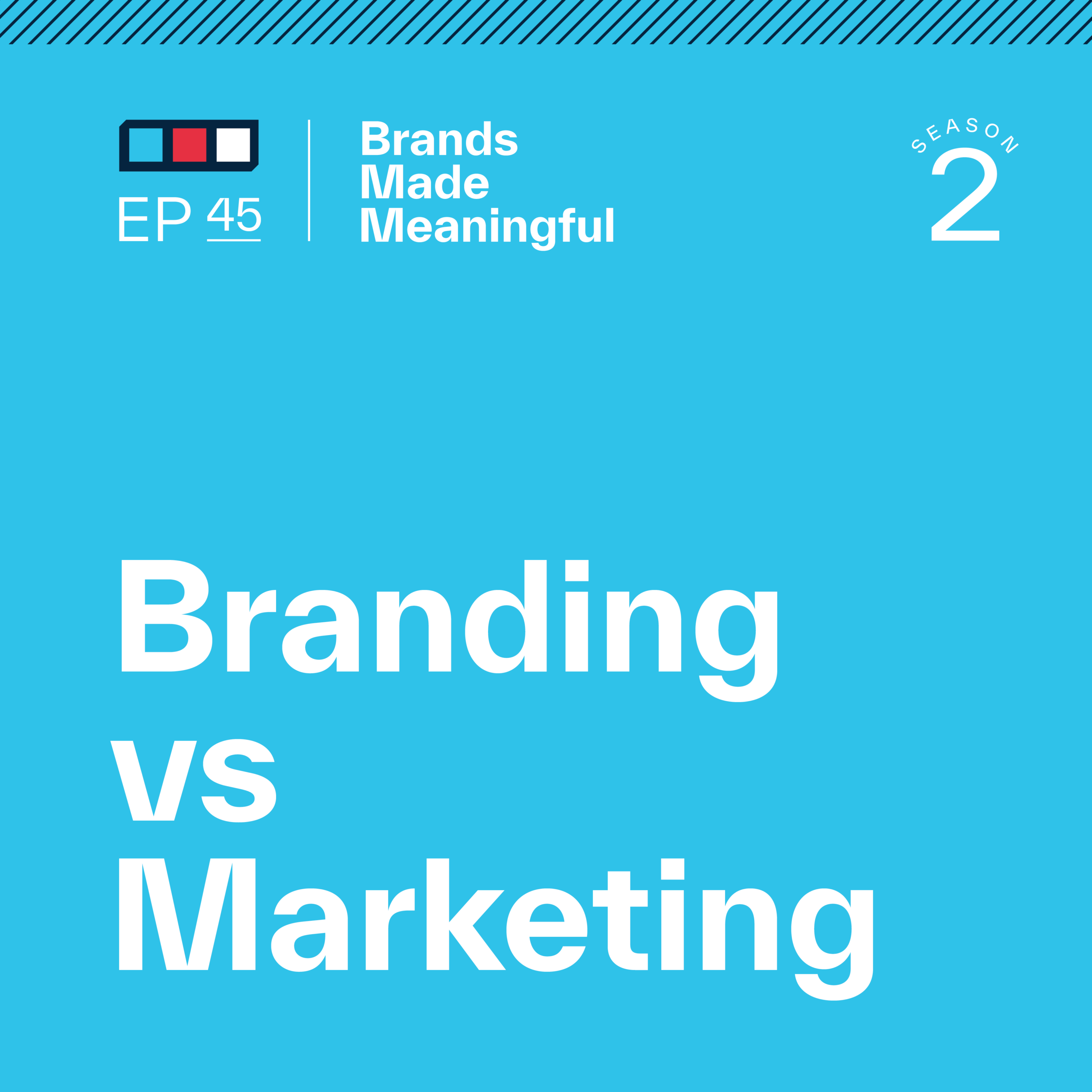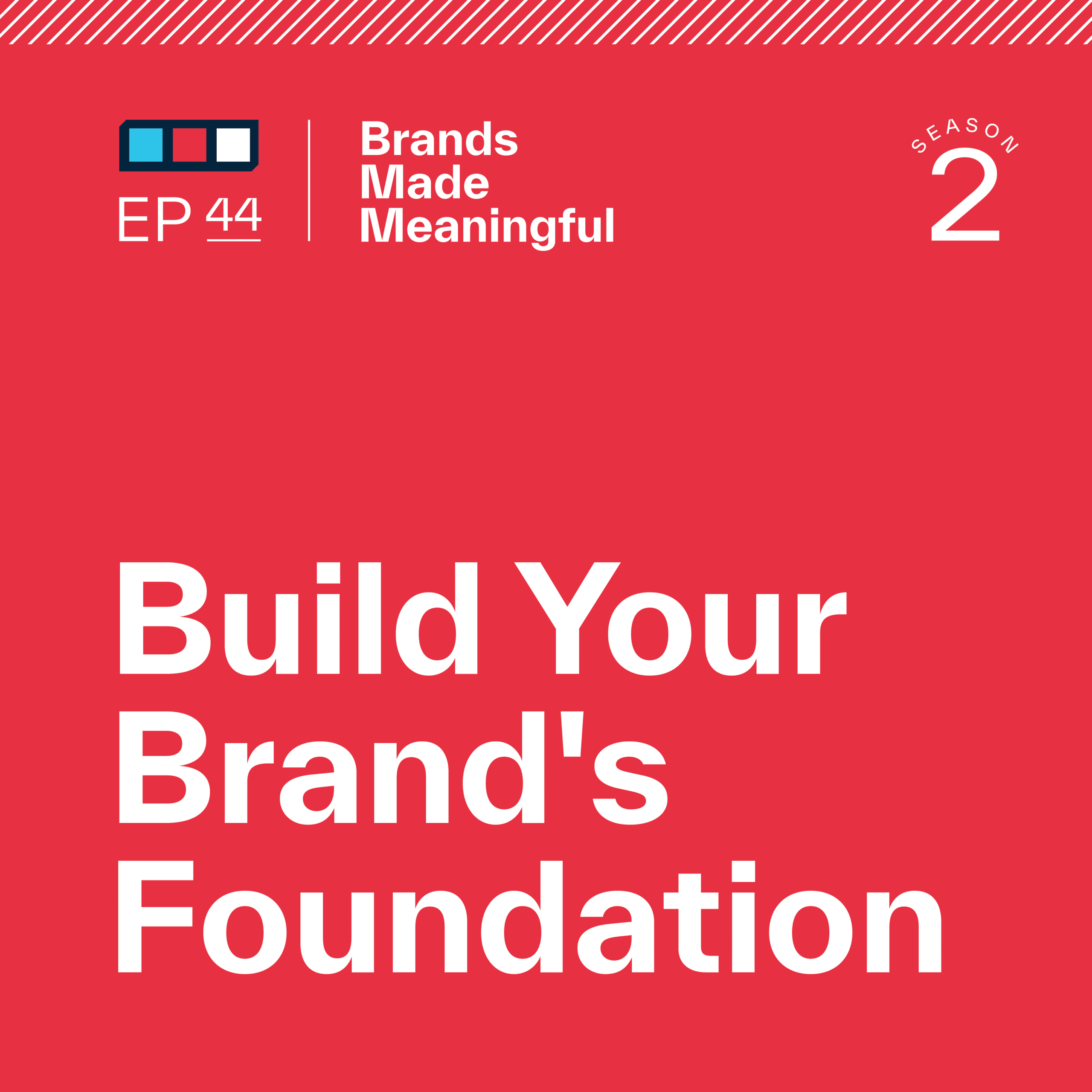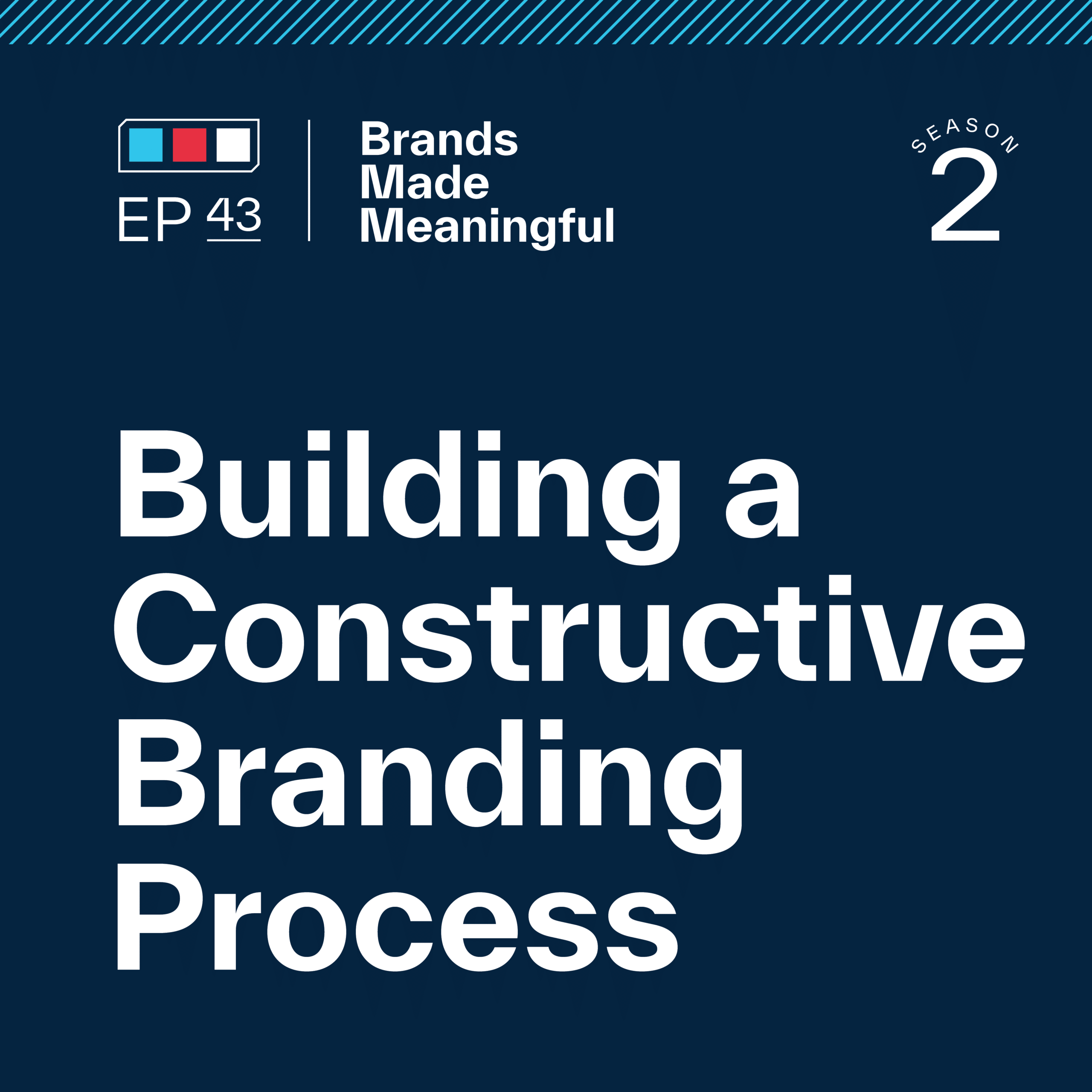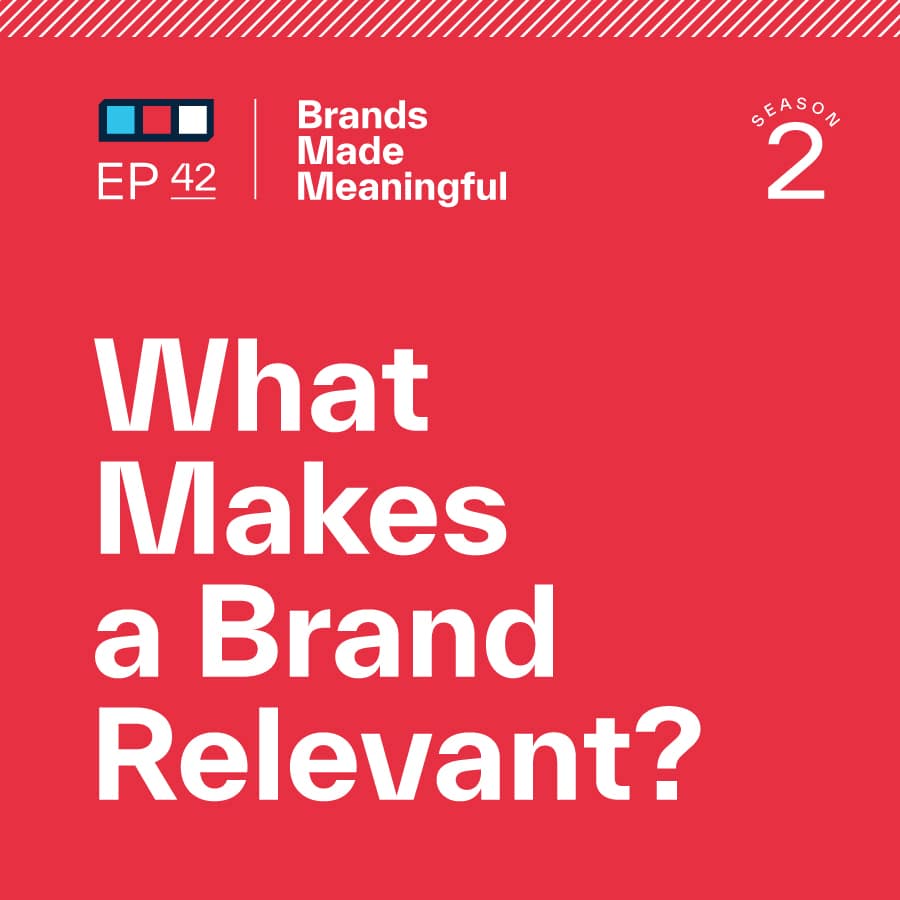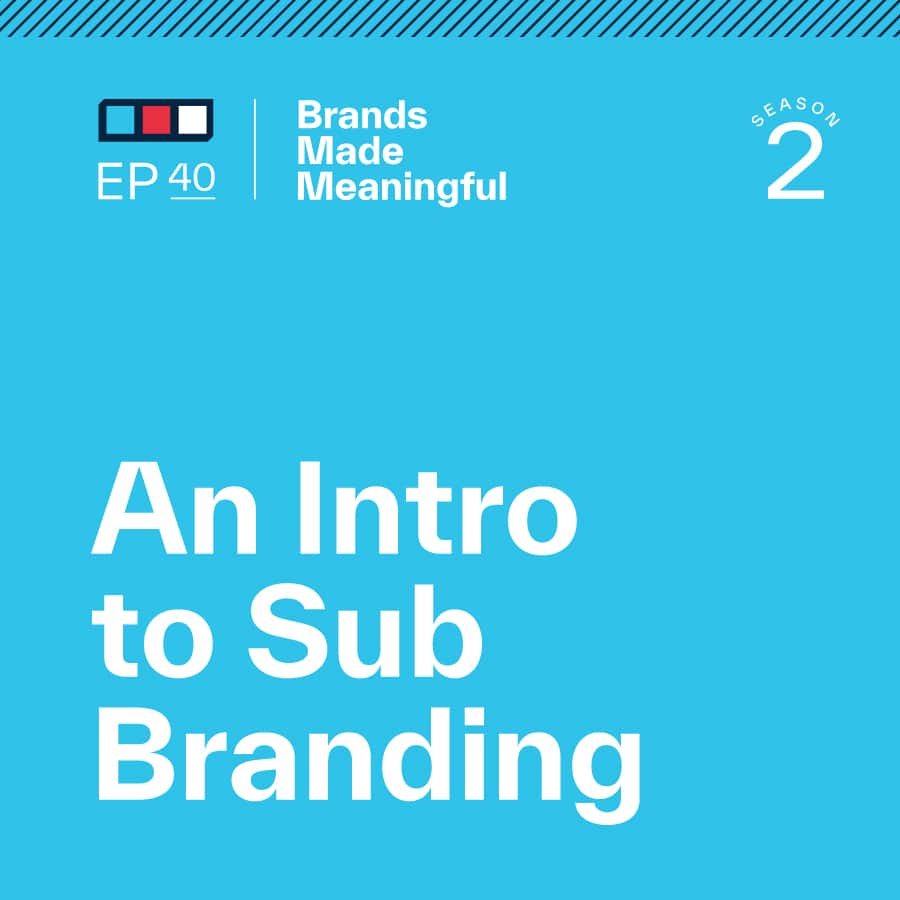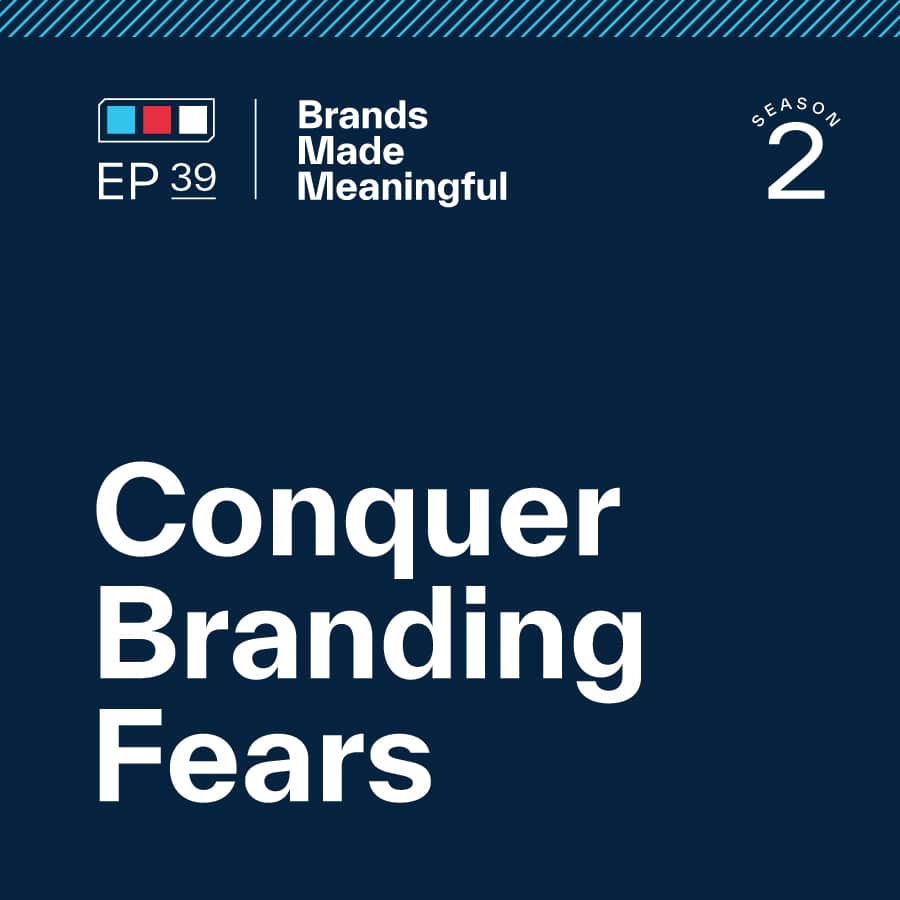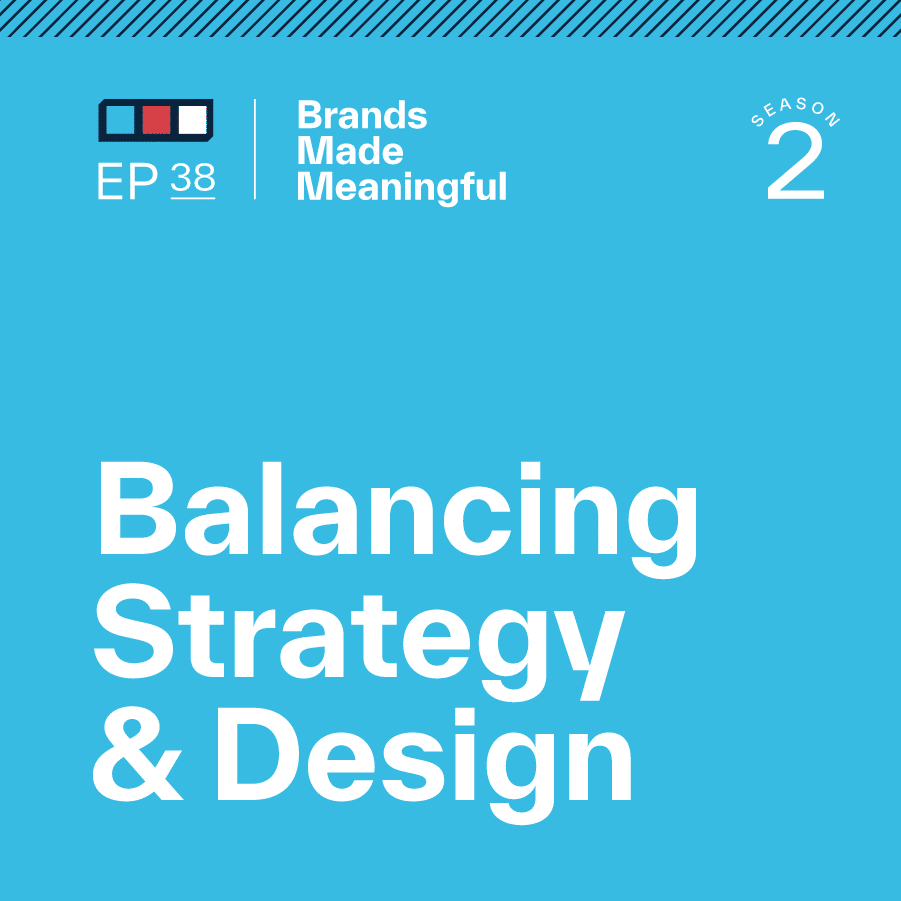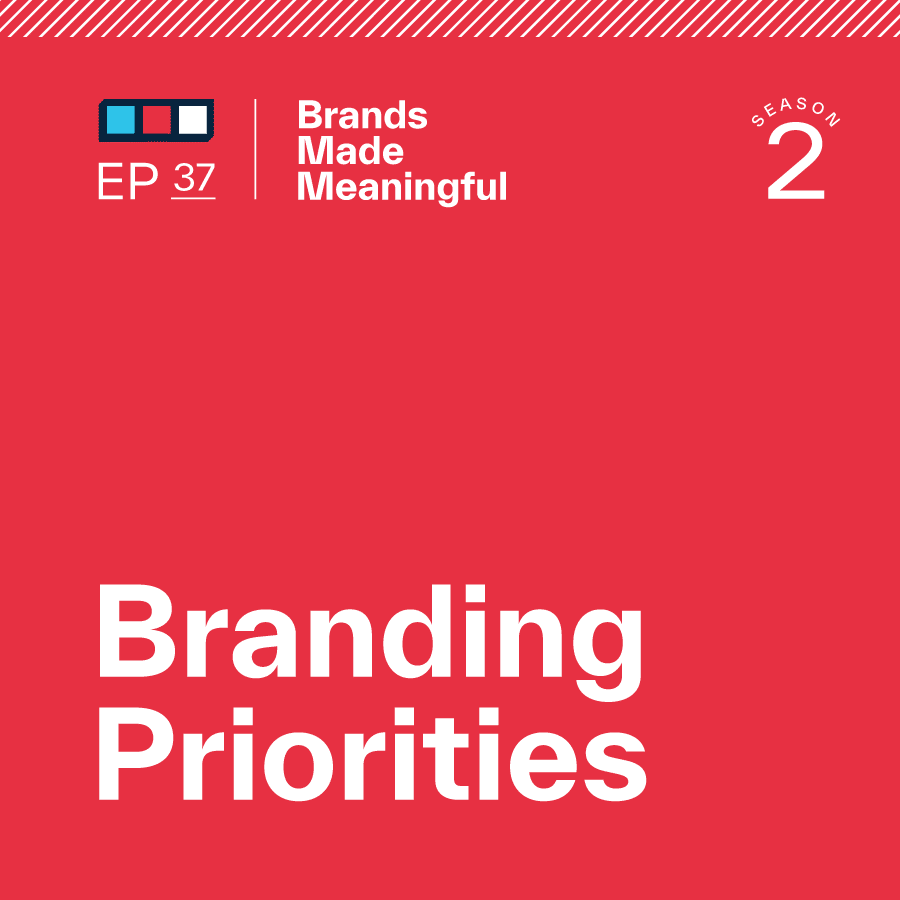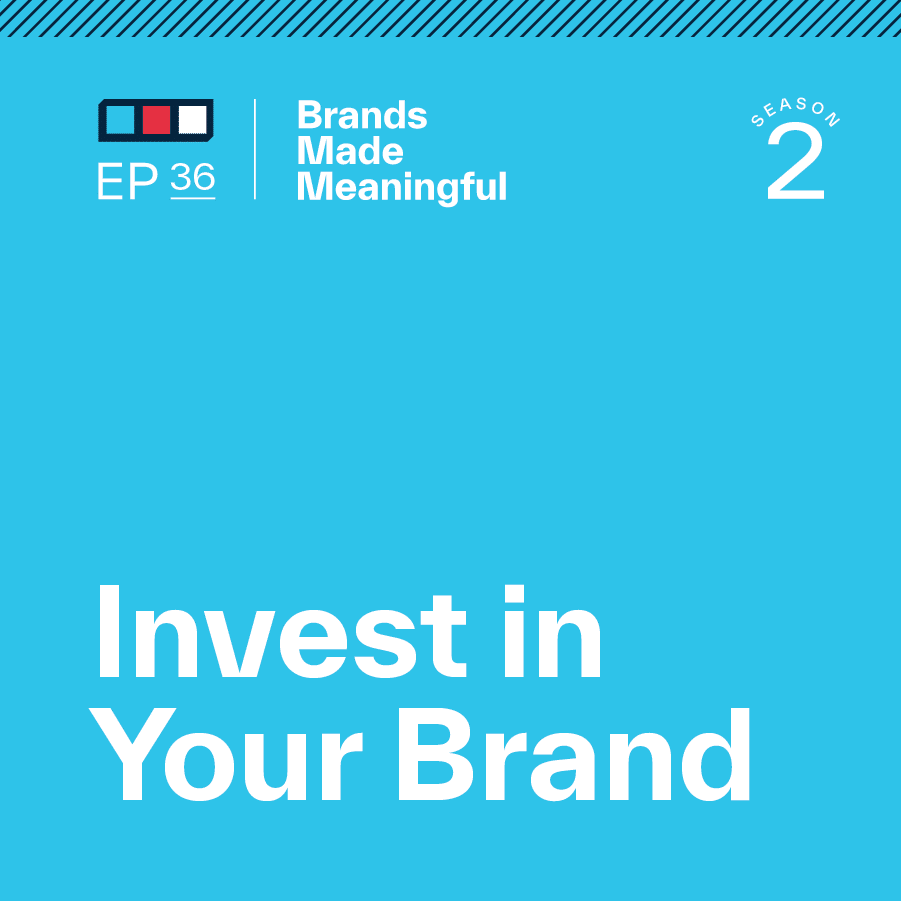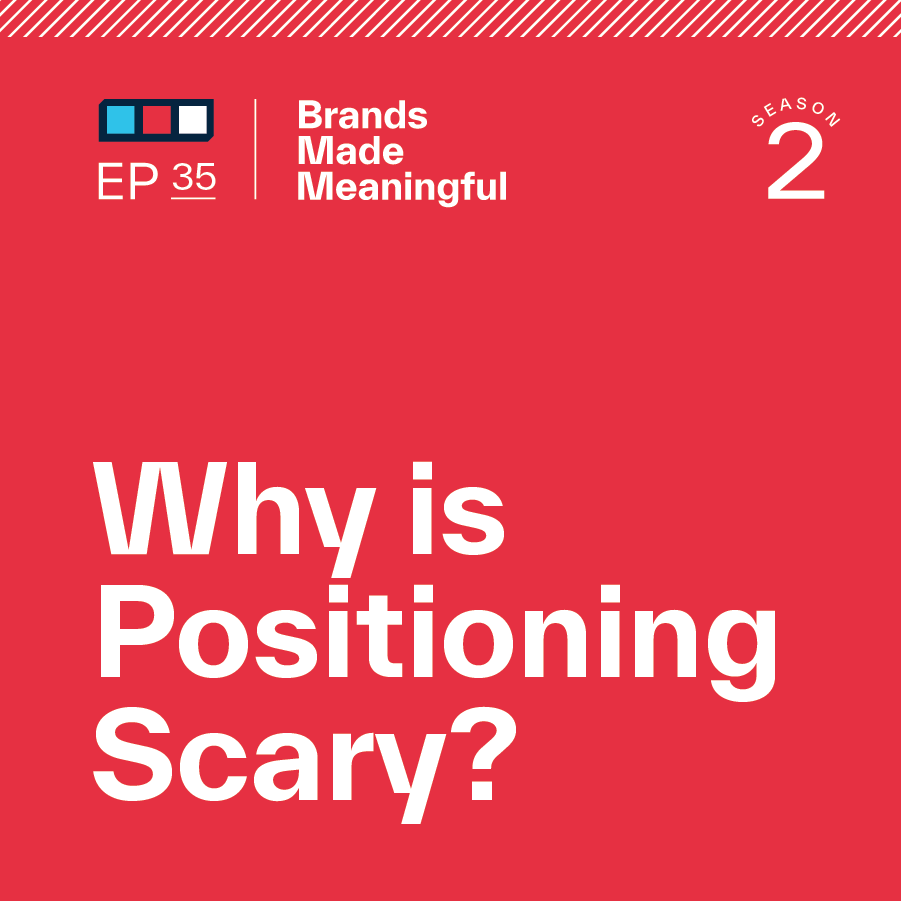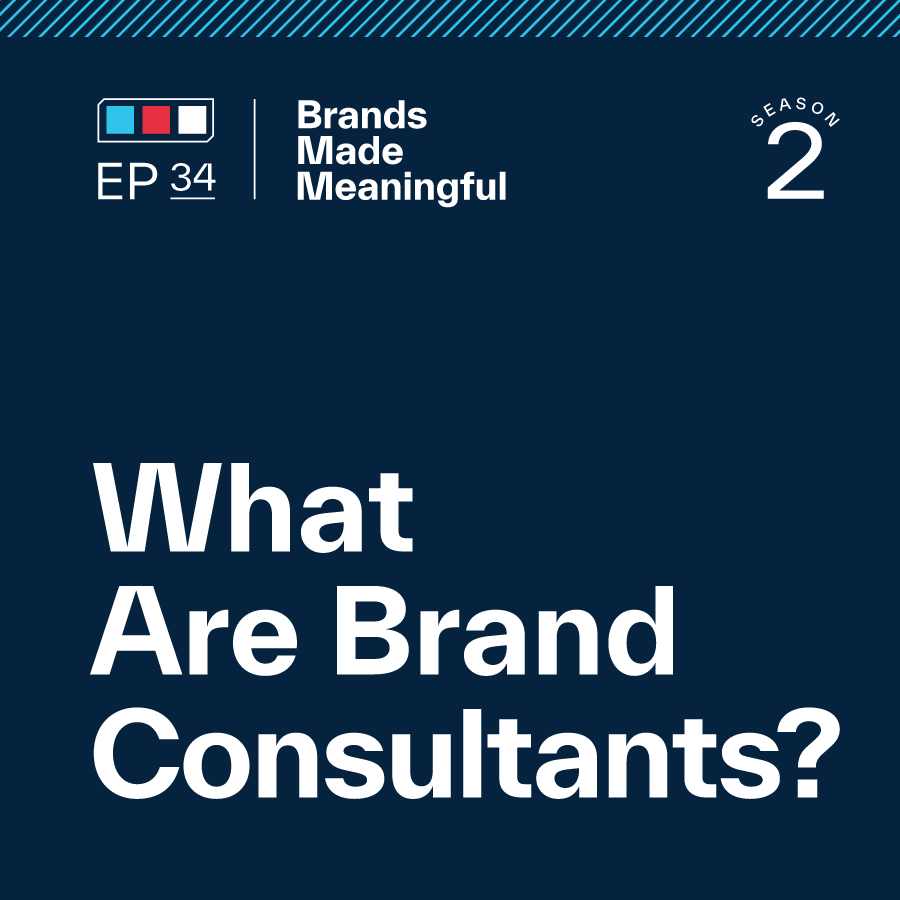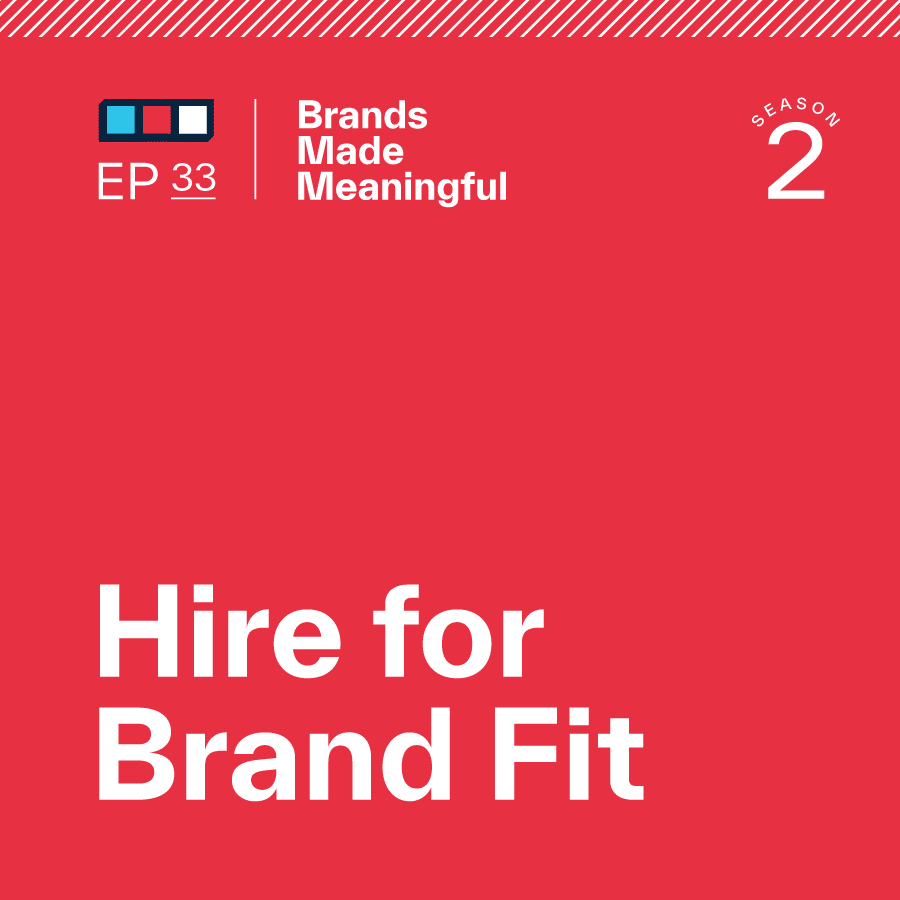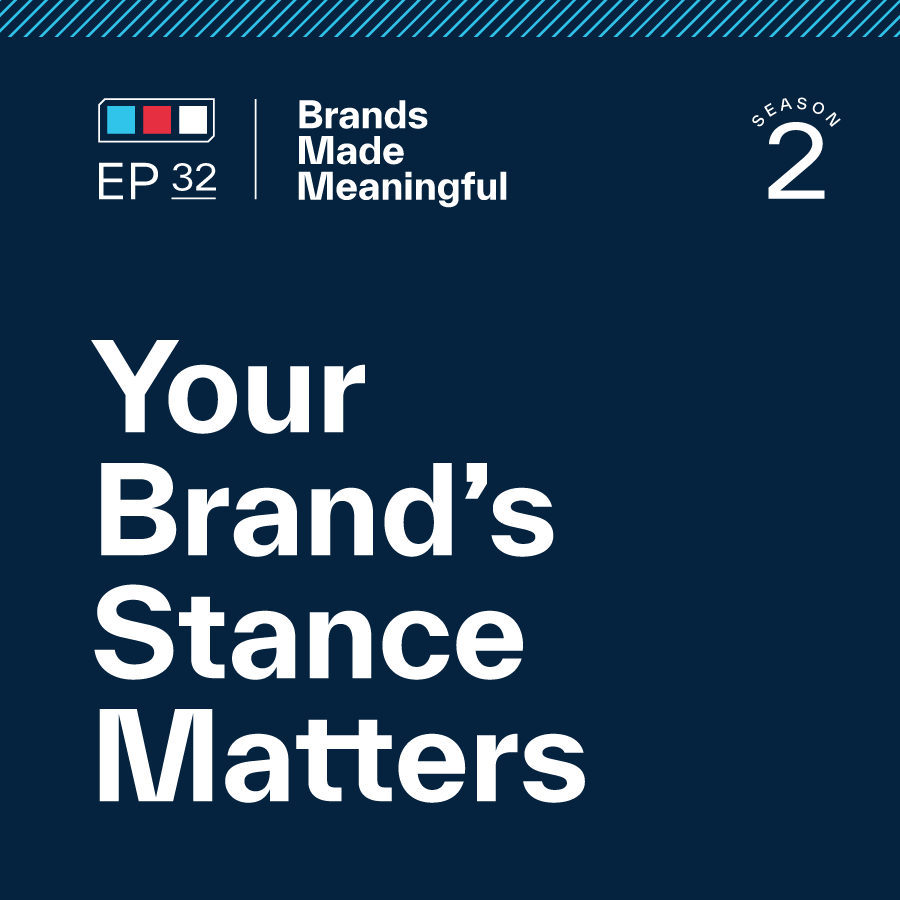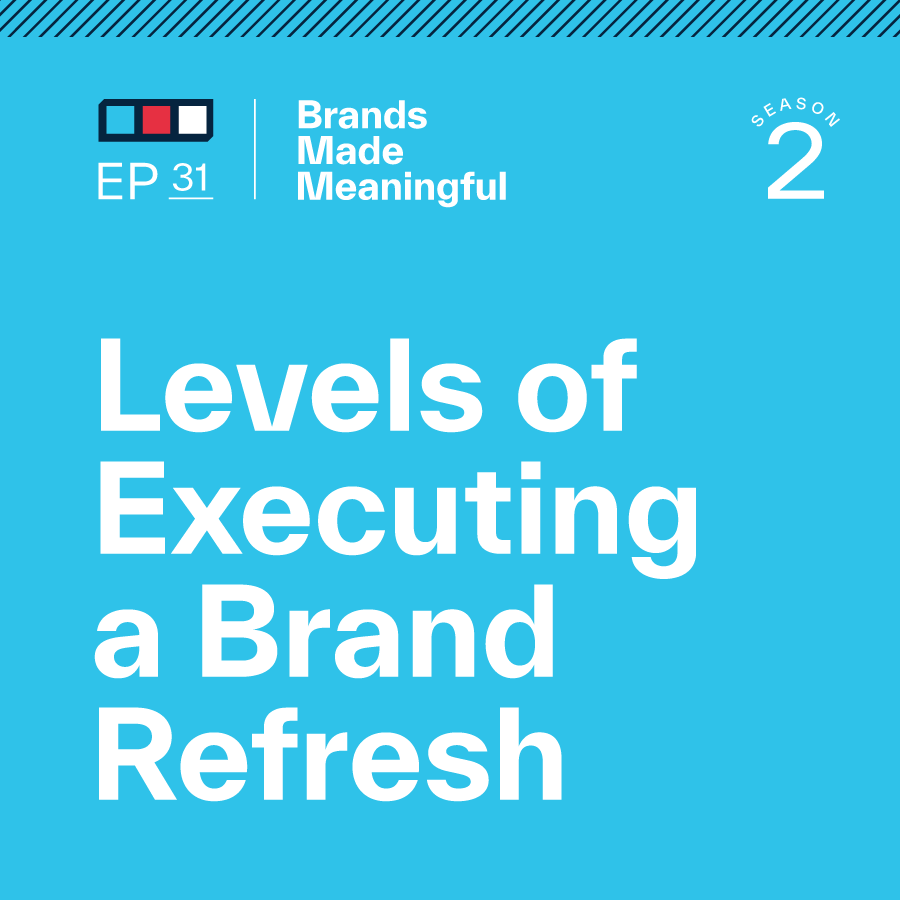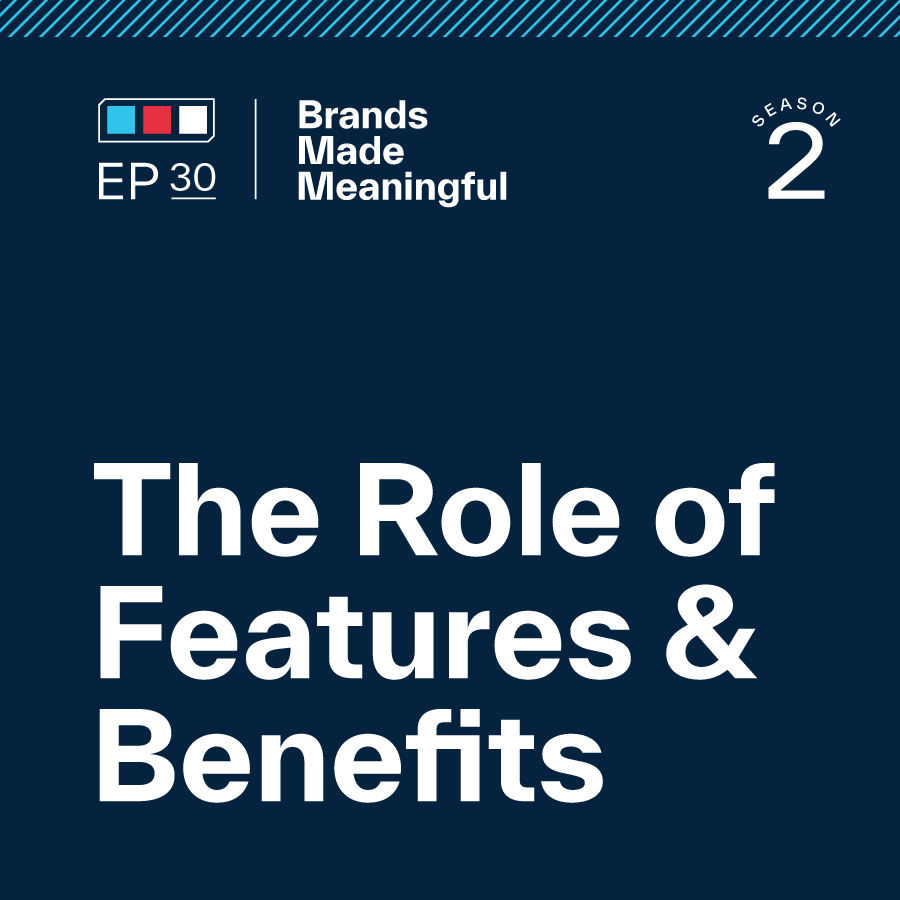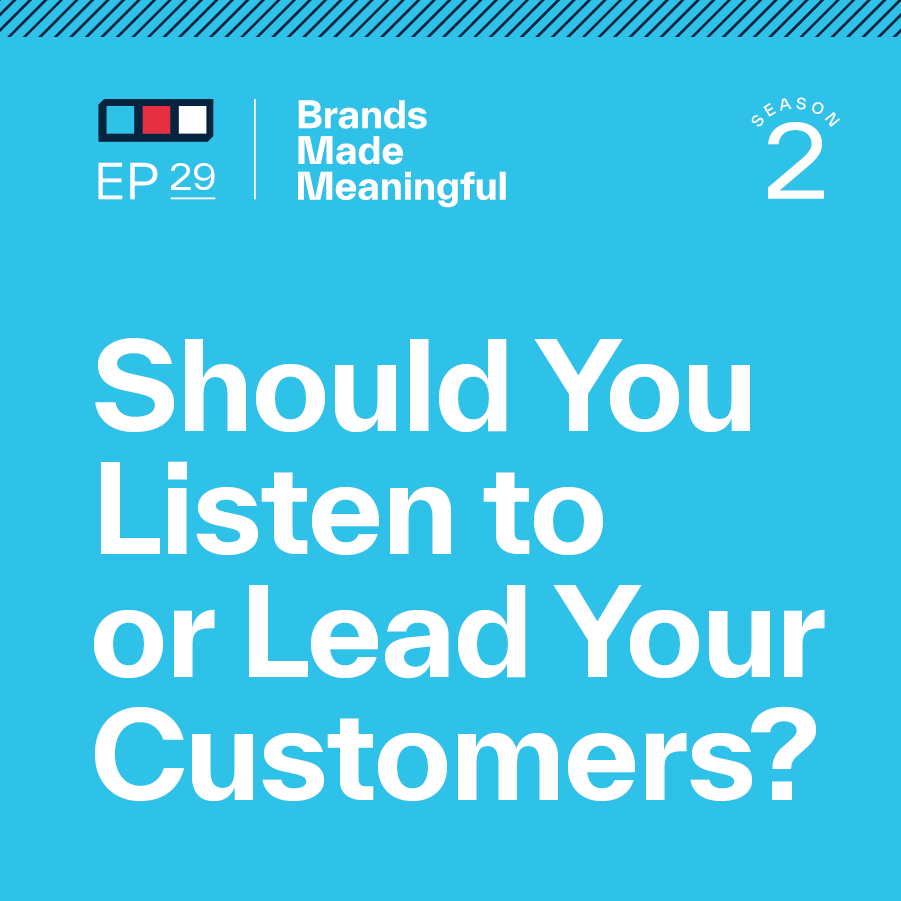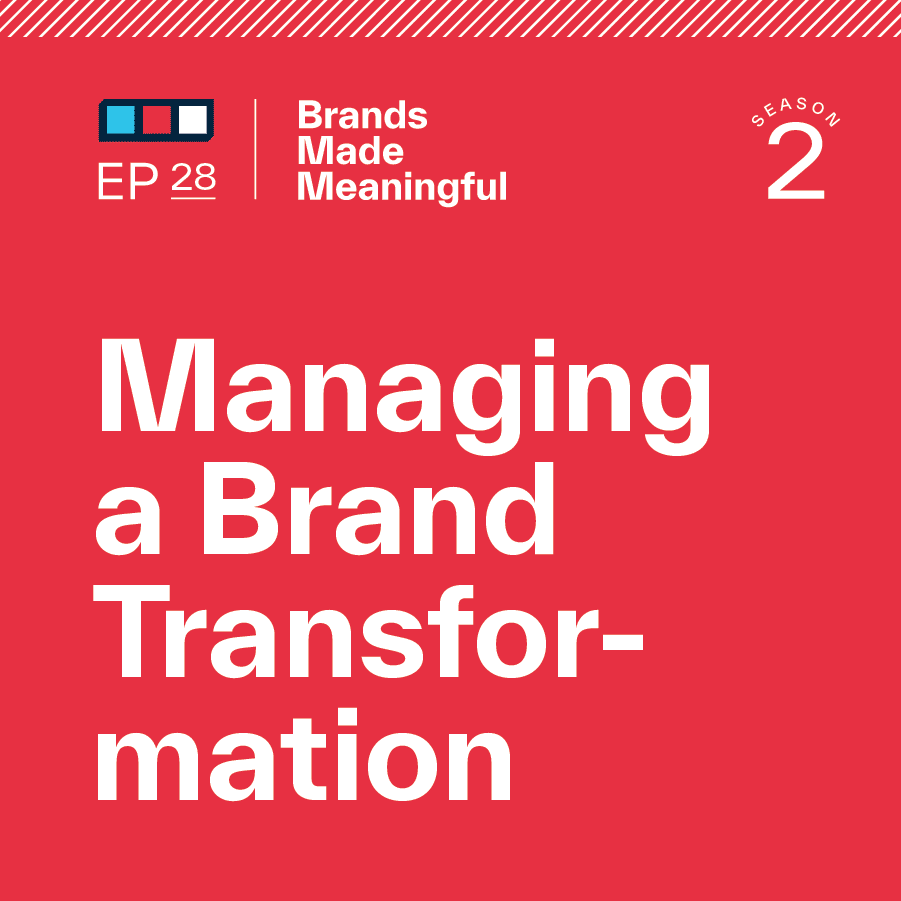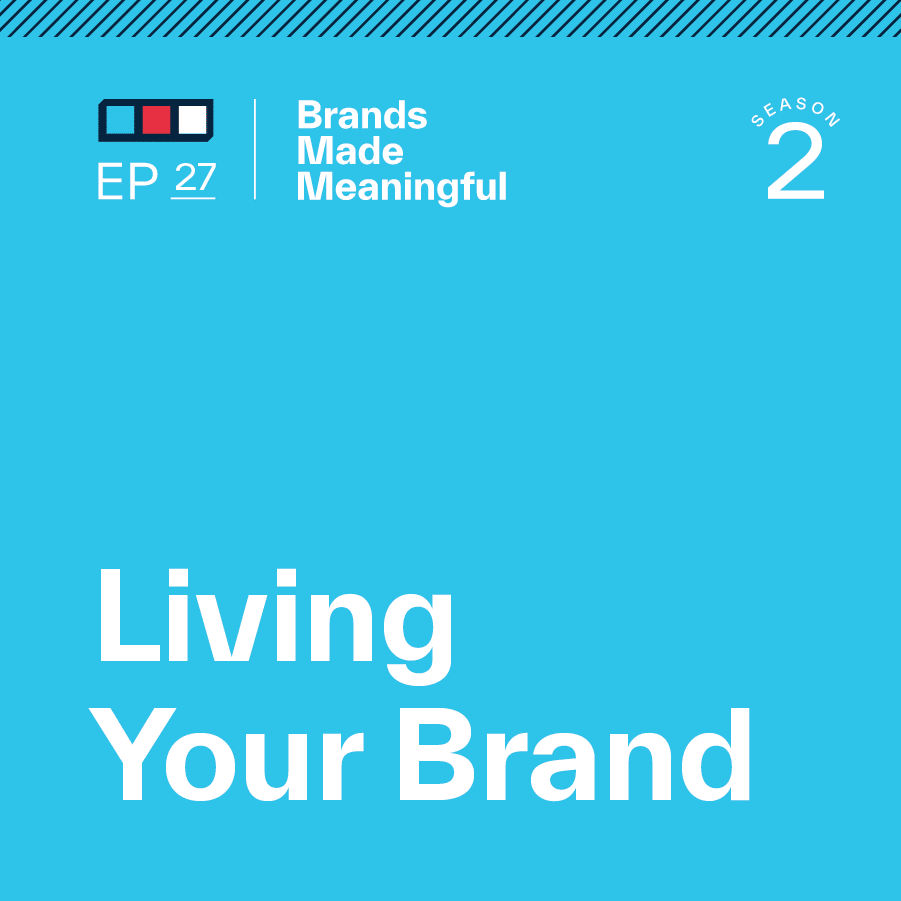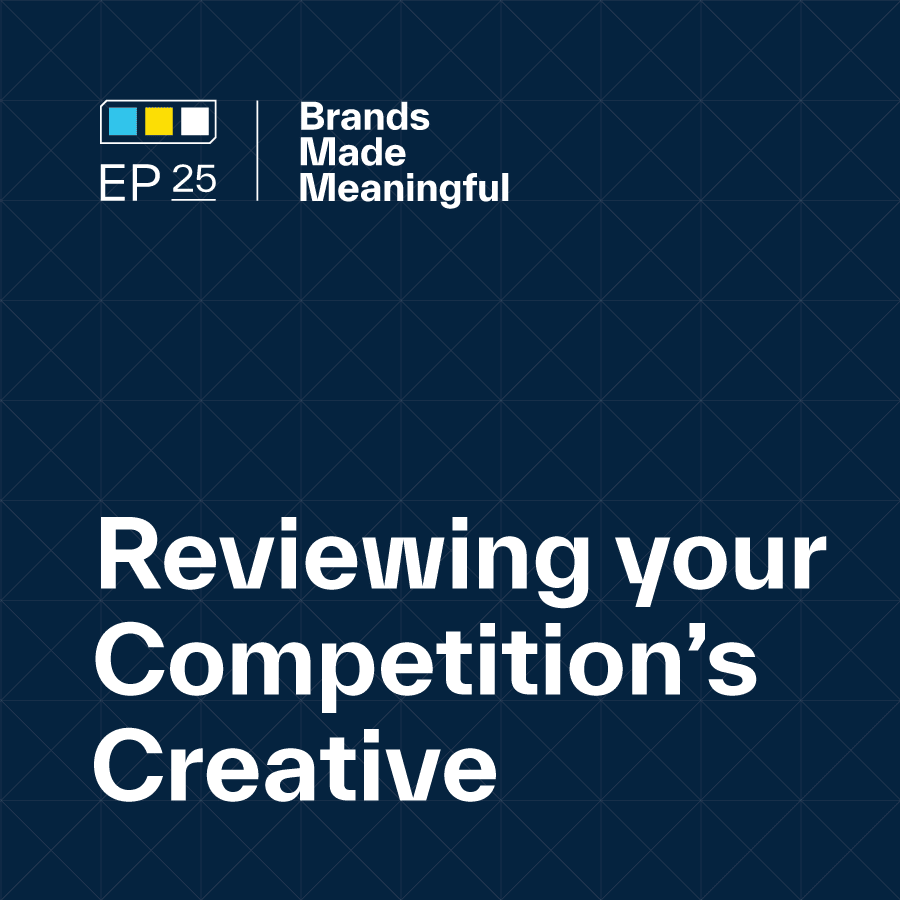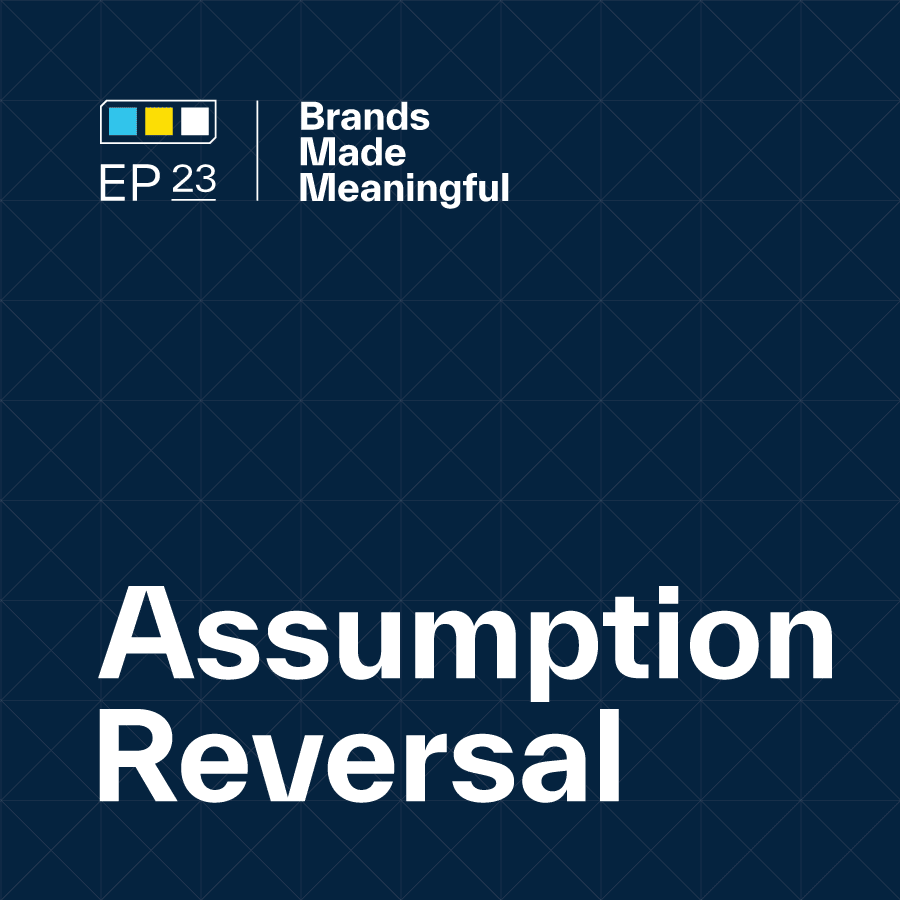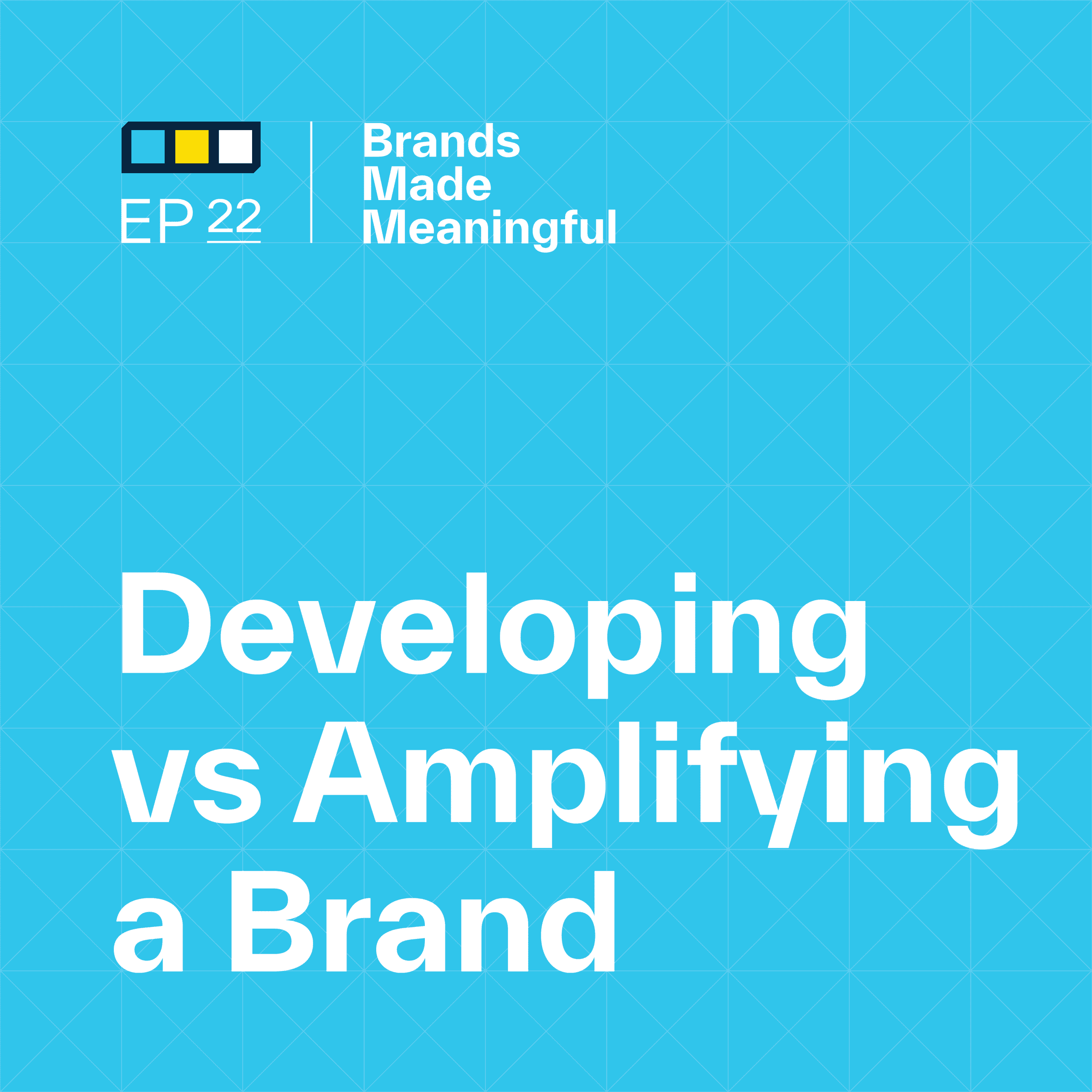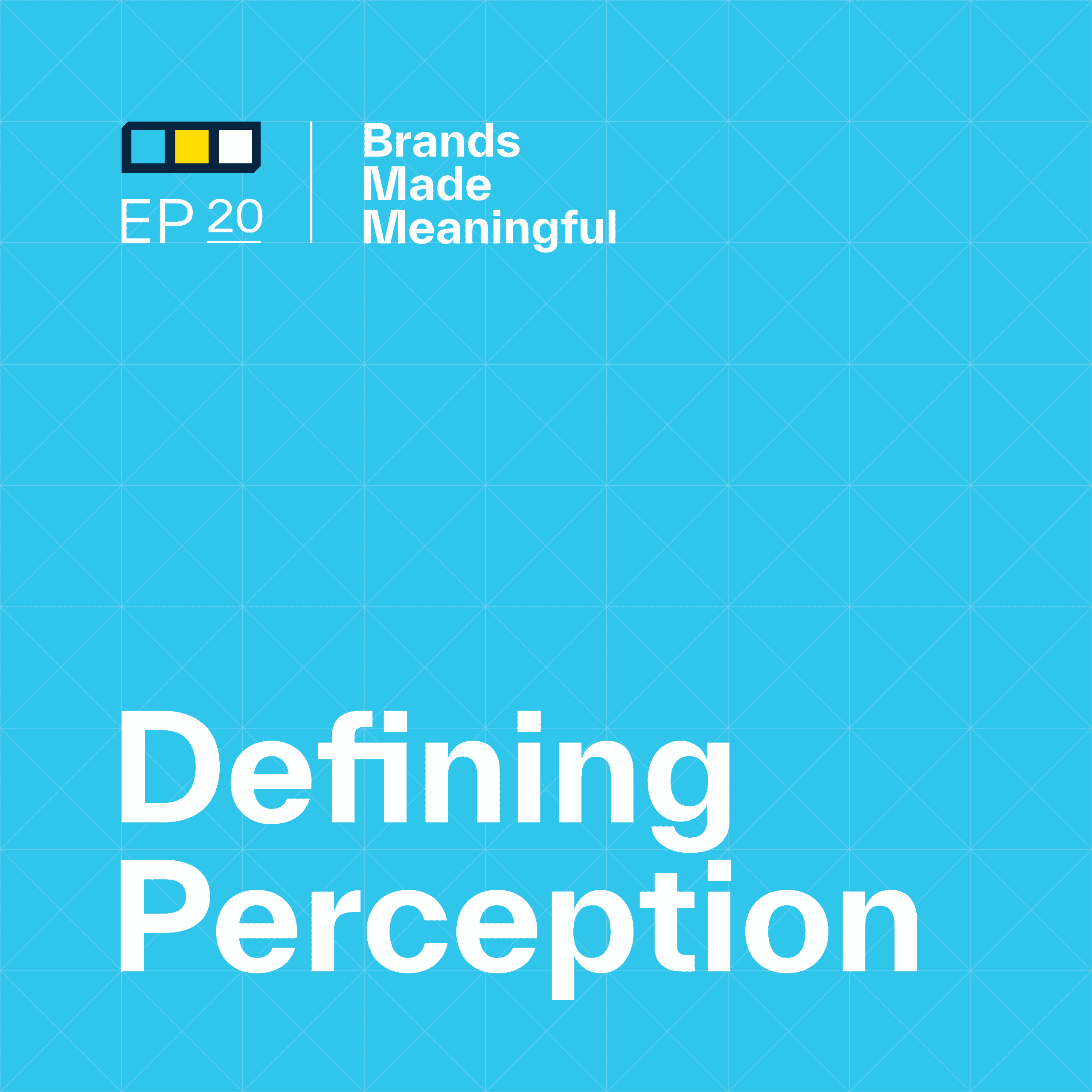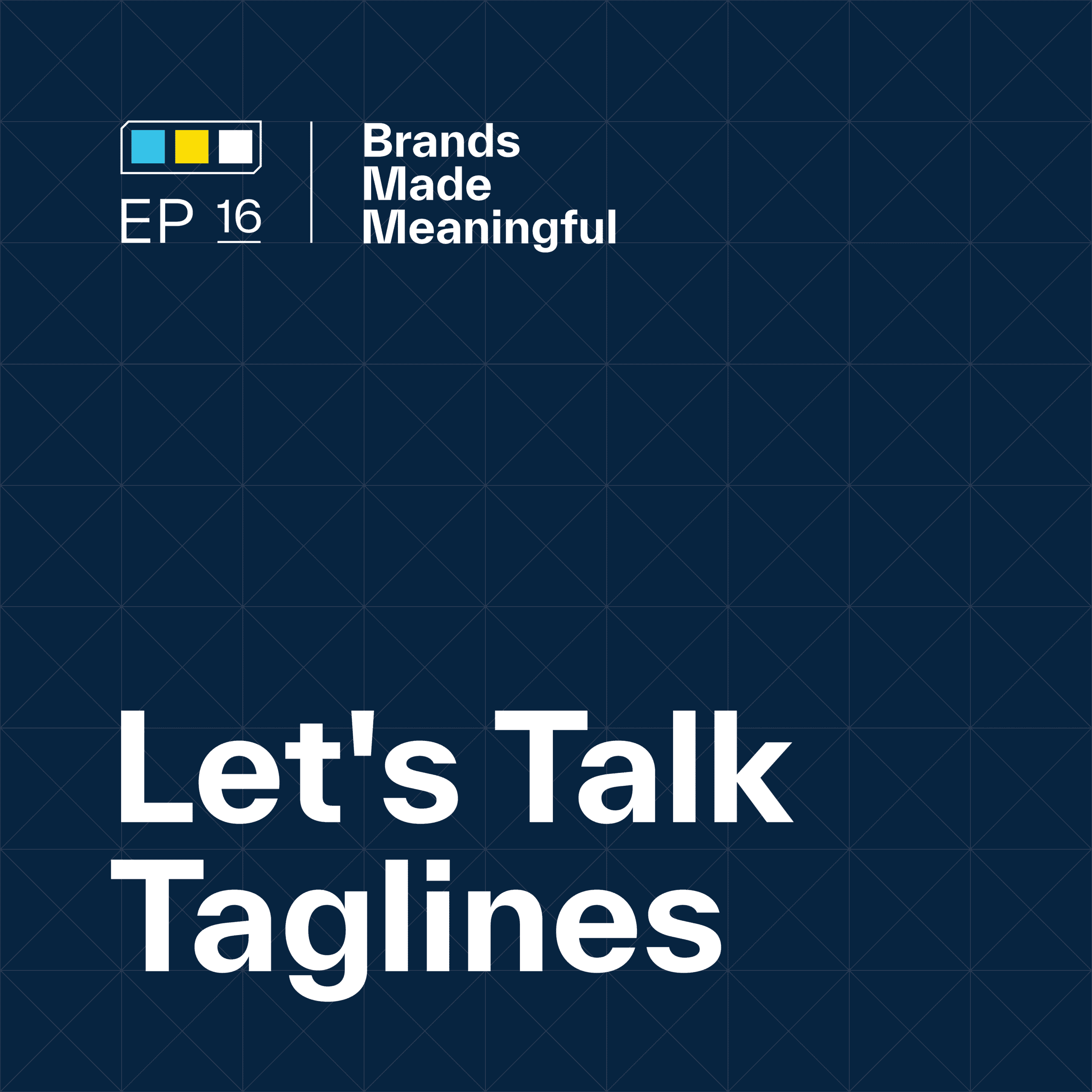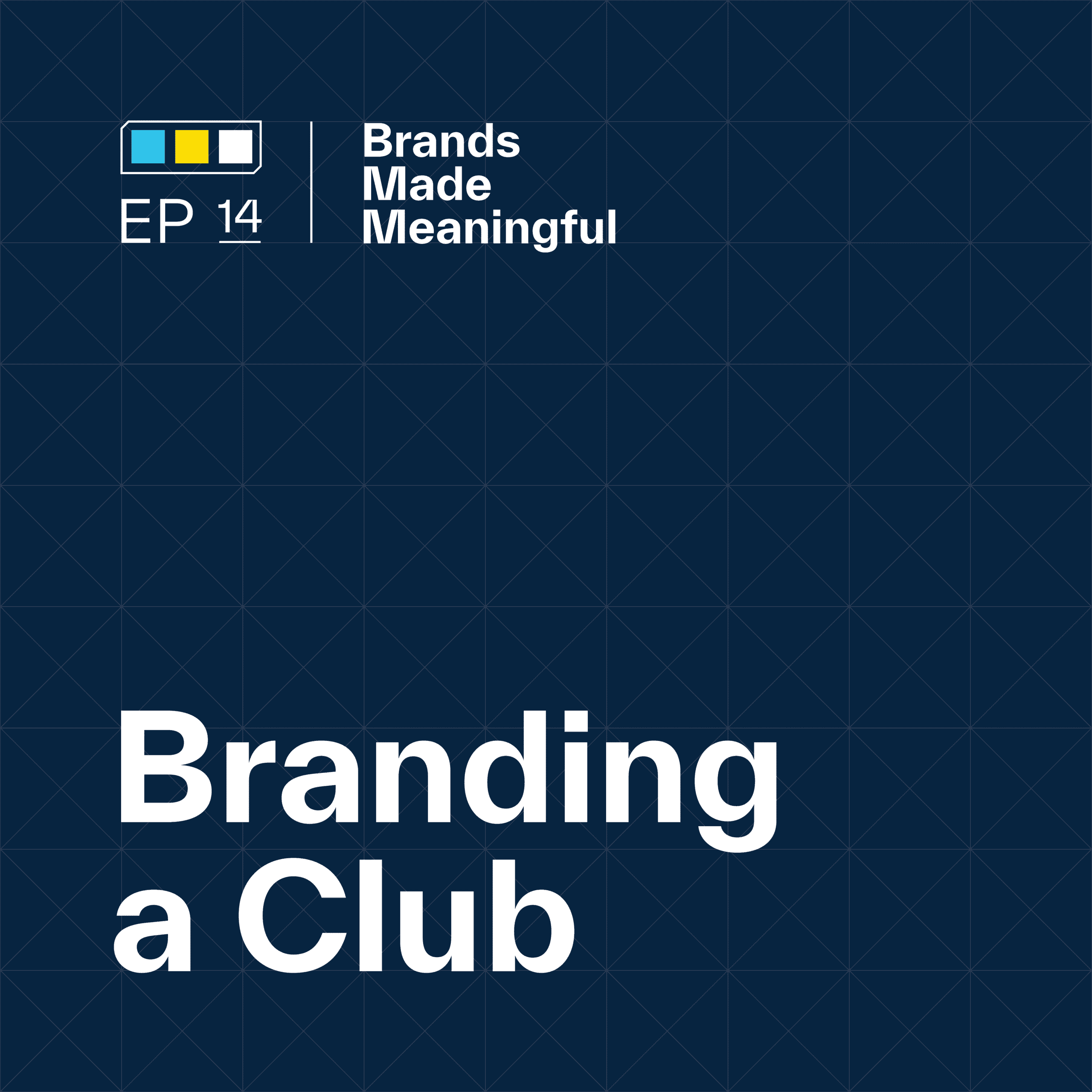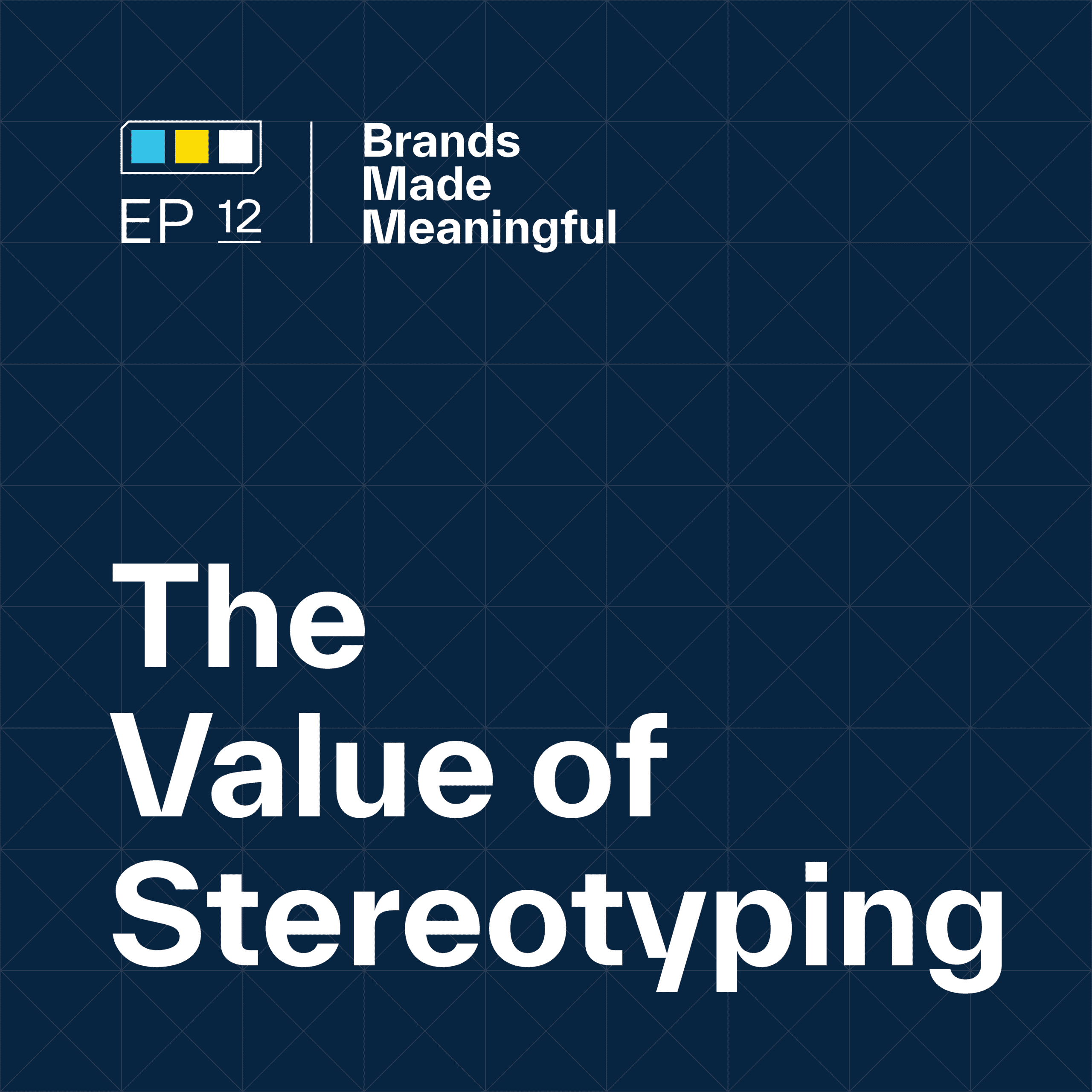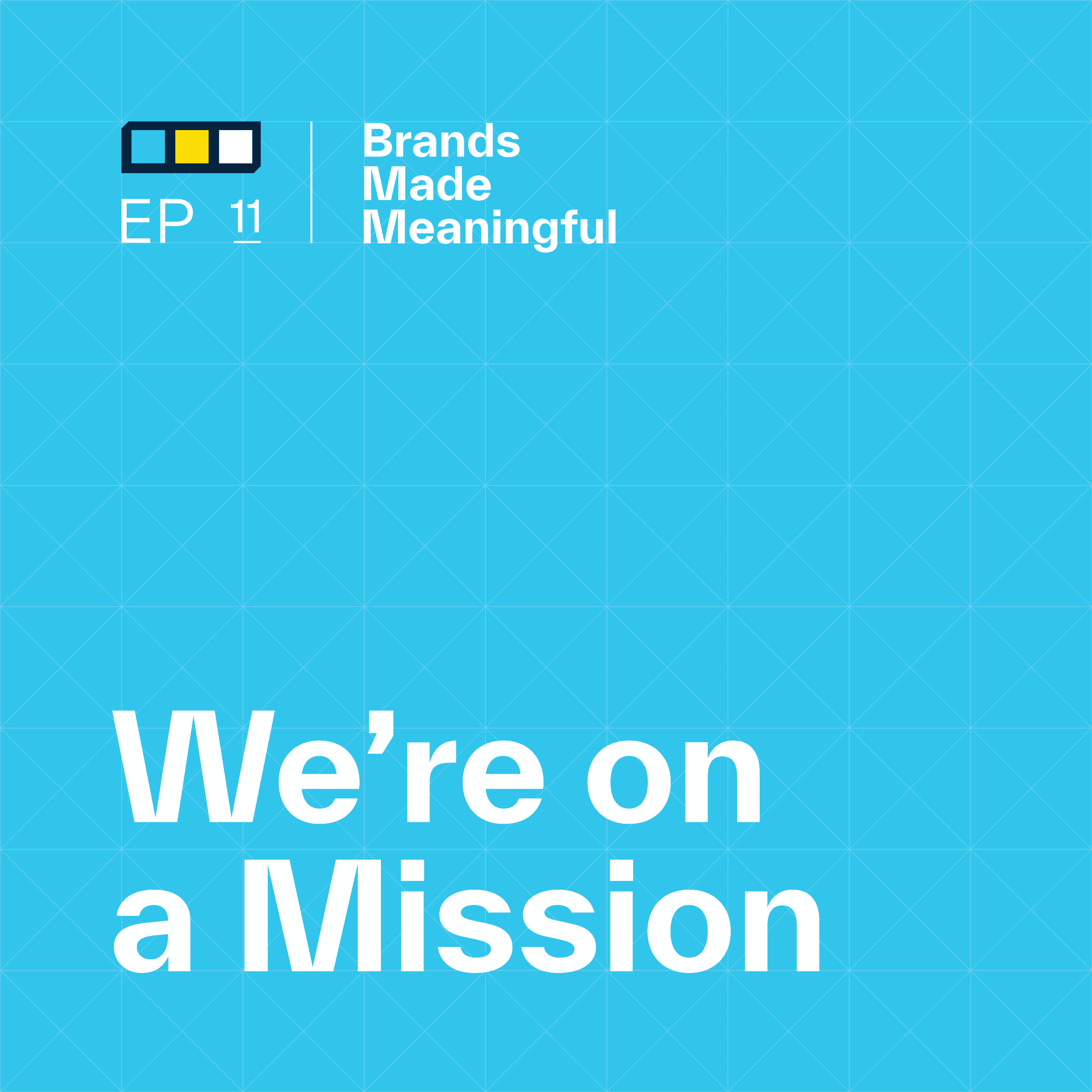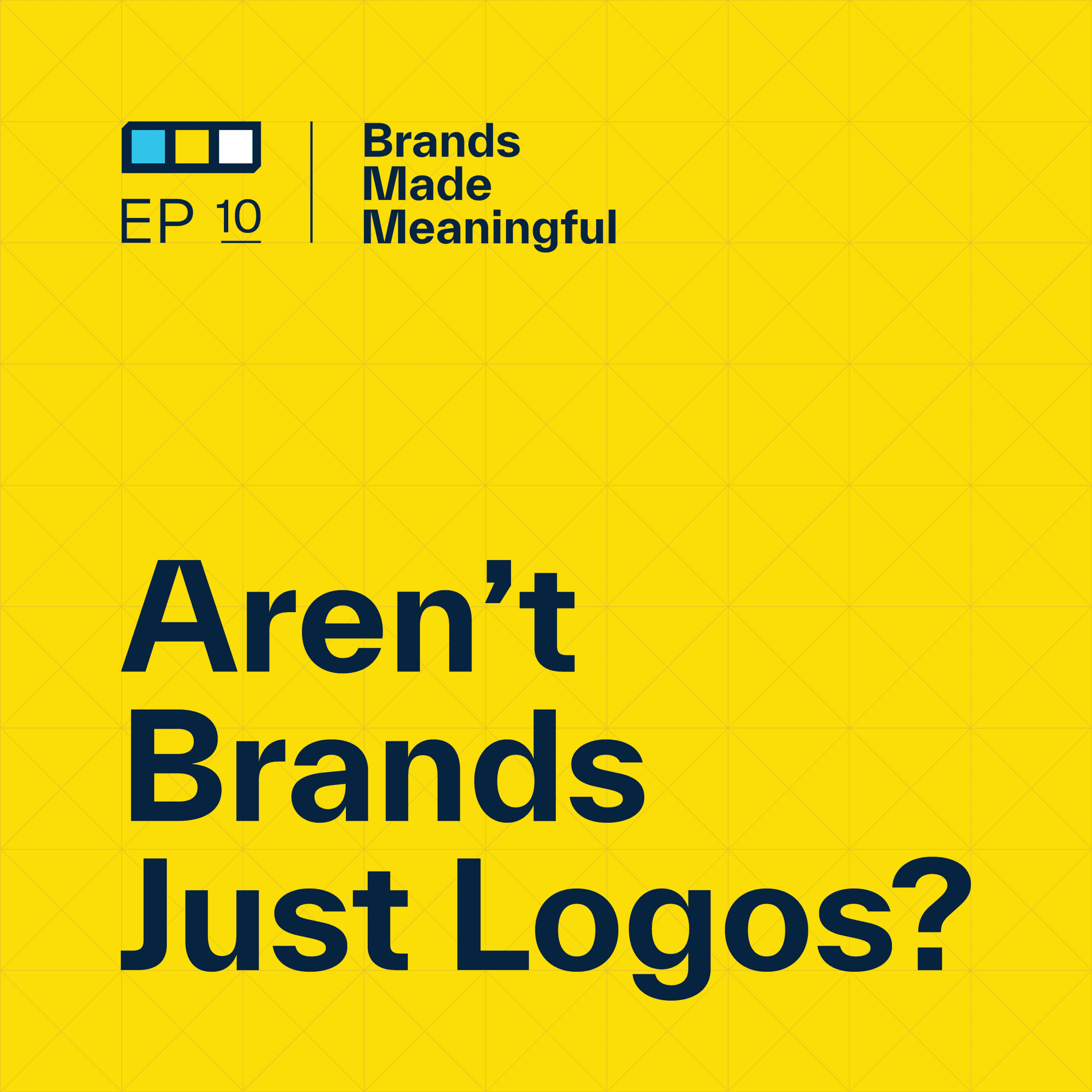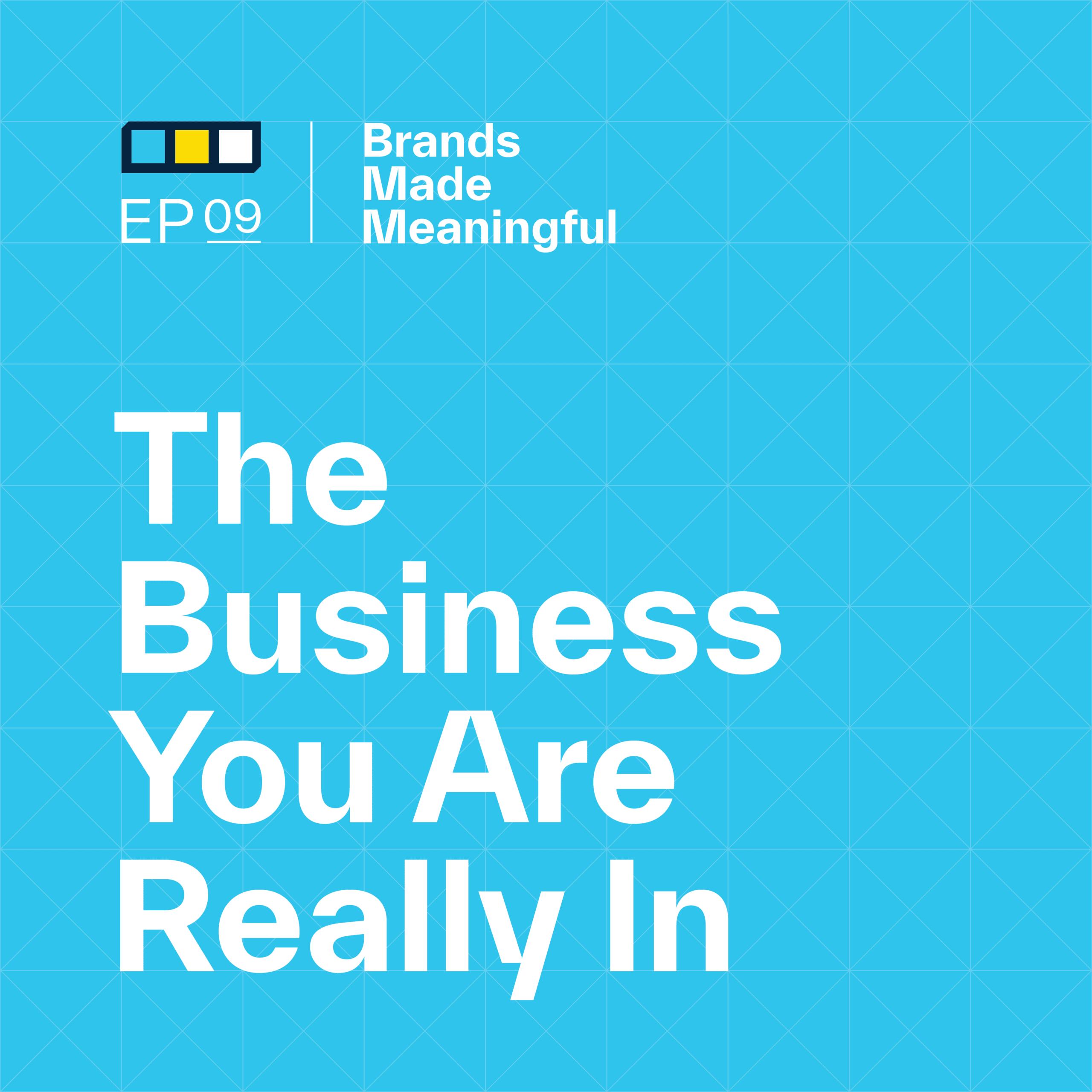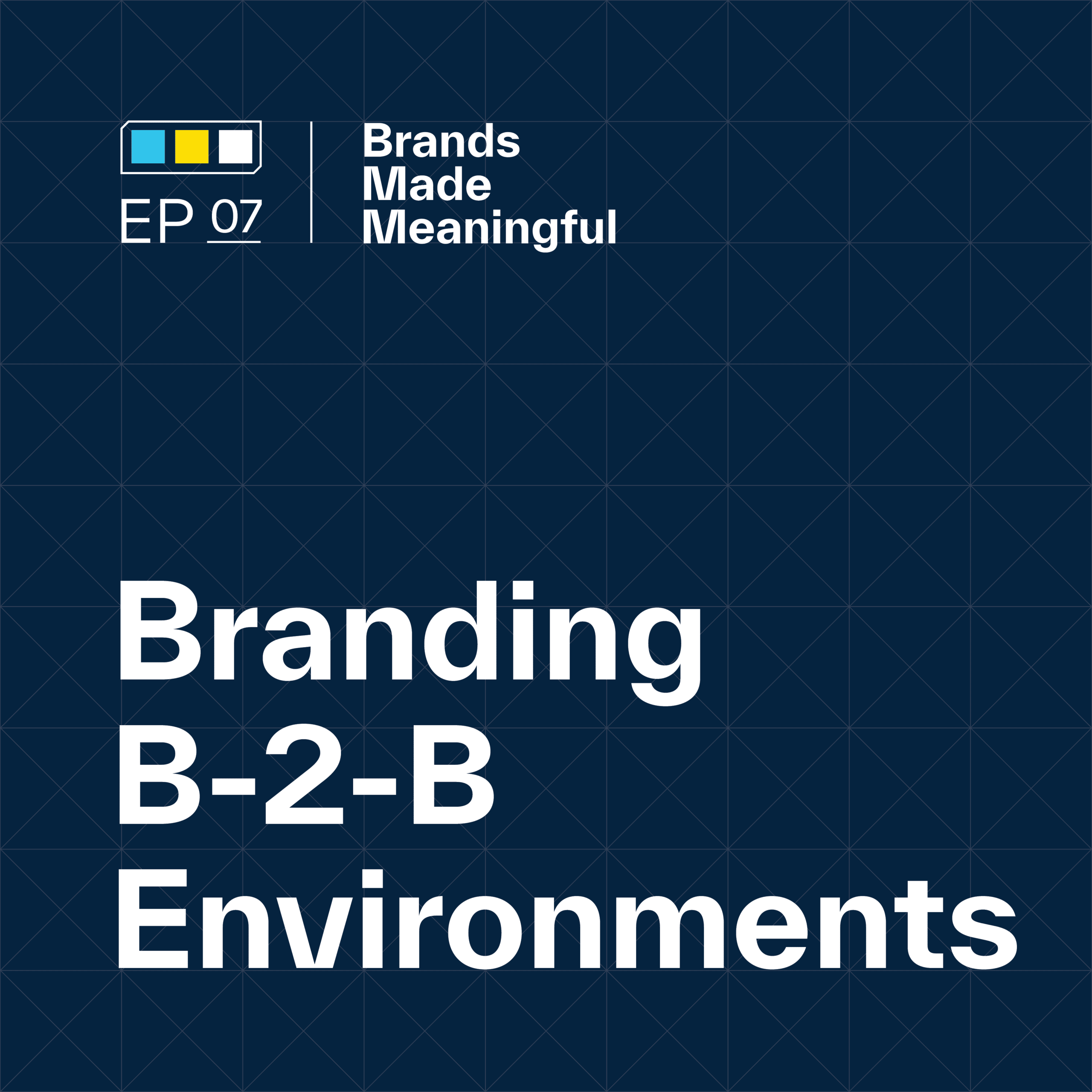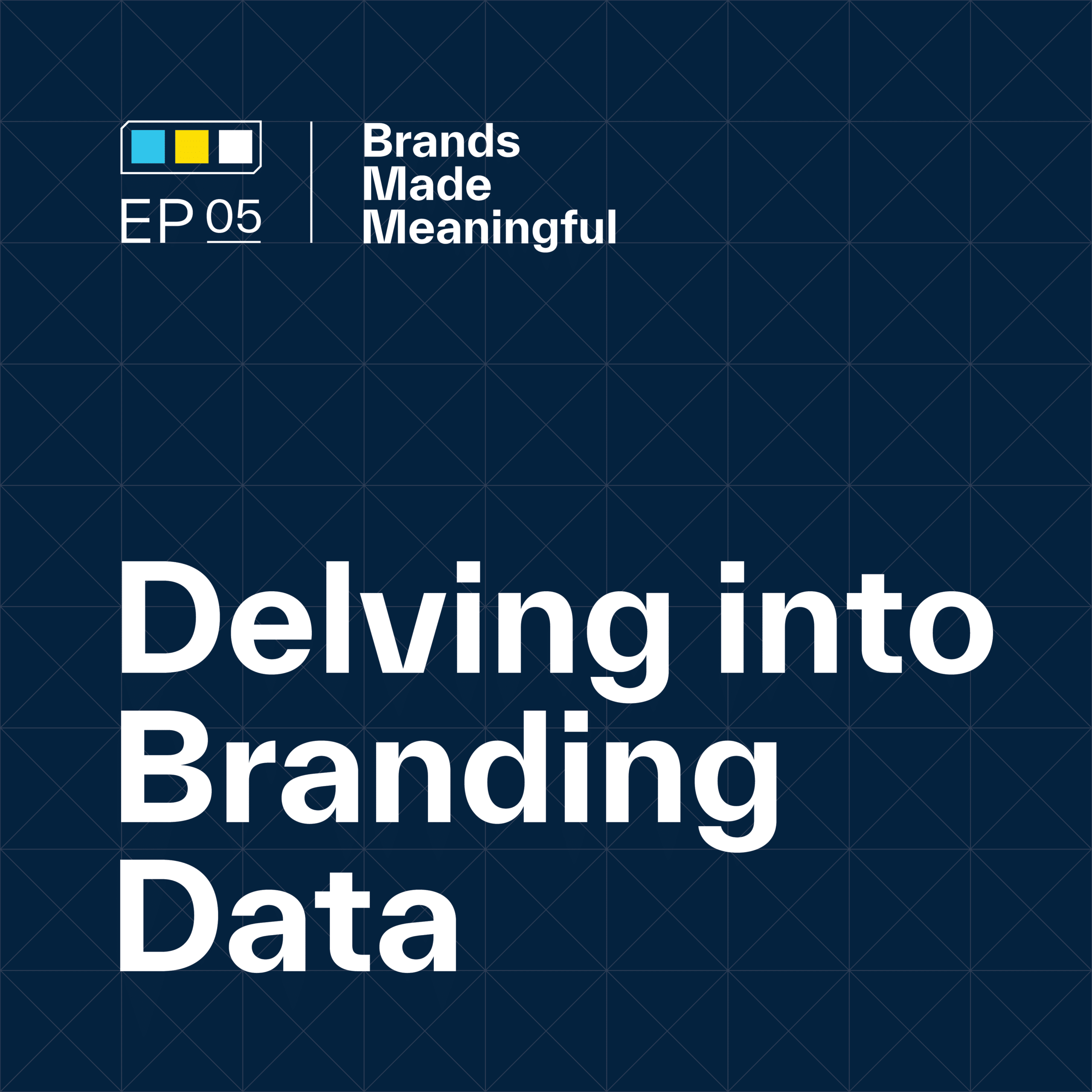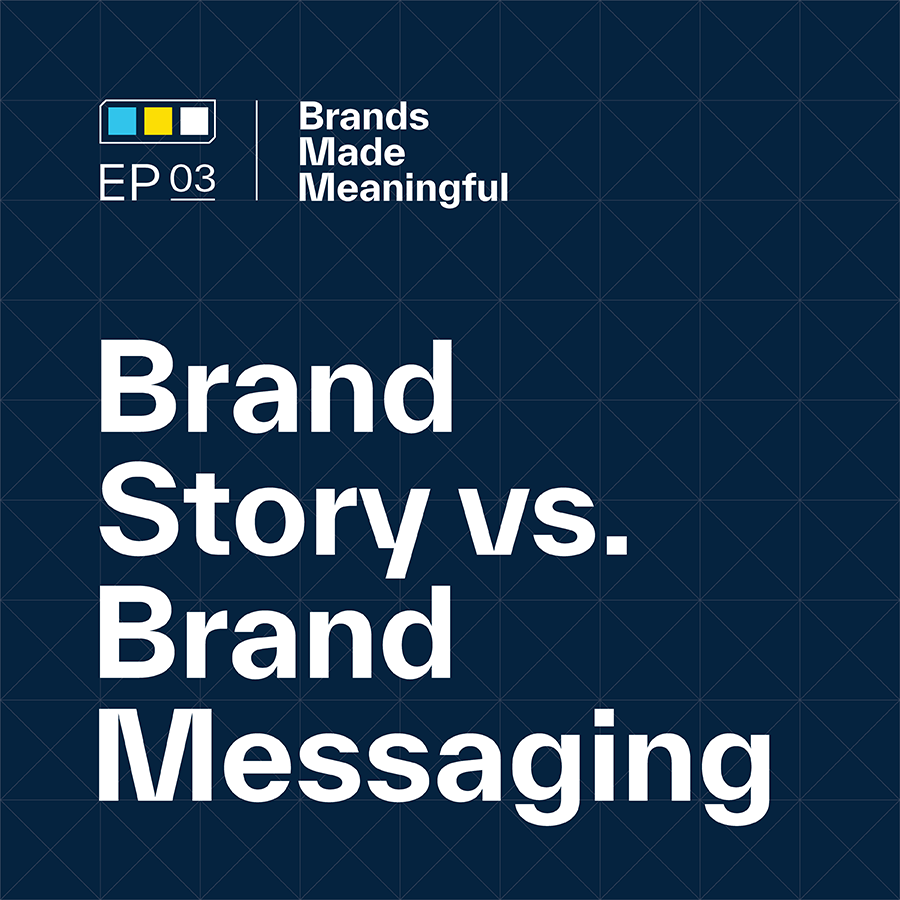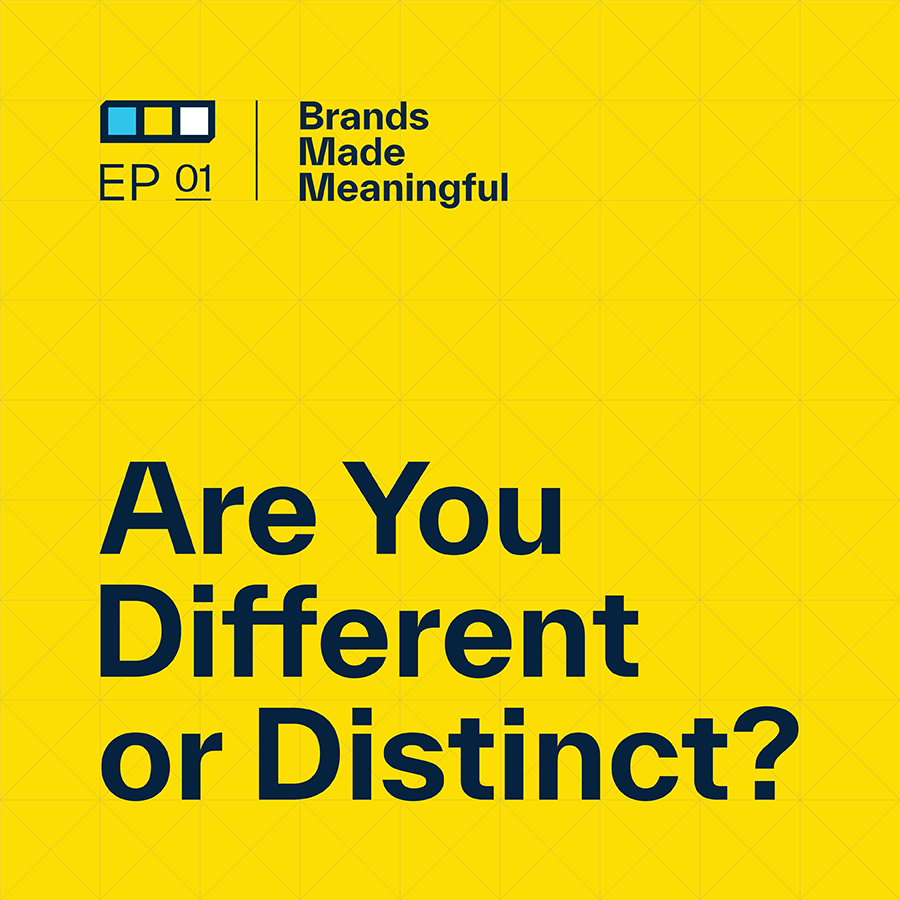EPISODE 26

What Makes a Brand Authentic?
Episode 26
Season 2 starts off with a discussion about building authentic brand experiences, both internally and externally.
EPISODE TRANSCRIPTION
This isn’t a super how-to tactical conversation. It’s a really, really important one.
Tucker What we do is create brand identity. And a lot of people think of identity as your visual logo or something like that. But identity is really understanding who you are and how you behave. And what we’re talking about today is that first question, Who are you?
Expand Full Transcript
Derek That’s an interesting question. So take it out of the branding context. Literally, you meet somebody at a business function, and if you said not, What do you do? But if you said, Hey, who are you? That person might respond with where they’re from, ethnic background, they might respond with what it is that they do in business. They might say, I’m a parent. So the word identity is really important to this. It’s how, and I’m using an individual human case, not a business case yet, but as a human, as an example, a person associates very certain things that help them identify who they are. So translate that to business.
Tucker If you’ve ever been at a party and someone gives you the vague, Hey, what’s your story? And everyone hates that question because it’s like, Well, what do you want me to say? How do you want me to respond to that? The first part of getting that clear response is what we’re talking about today. It’s understanding who you are so that you frame that story up in a really meaningful way that feels really authentic. So when we look at a brand, and I’m going to get super high level here and we’ll come down, so I don’t want to lose anybody at the front end here.
Derek I’ll stay on the ground. You get up in the clouds and we’ll just pull each other to the middle.
Tucker If I’m floating away, just grab me by my feet. So, at its core, a brand lives in two places. One is internally facing. It’s all about authenticity. It’s all about answering the question, Who are you? Where are you going? Who are you? You can’t answer that with your customers. You’re answering that yourself. The second one is externally facing. This always focuses on being relevant and surprising. So the thing we’re going to ask here is, How do you behave? If you are the same type of person, how are you behaving? What kind of experiences are you creating for your customers? Those are the two things that we focus on as a brand.
Derek We deal with this all the time with the businesses that we work with. In the branding work that we do, we deal with internal and external. But for the sake of somebody who is just tuning in for the first time, take a minute and elaborate on when you say internally facing, what is that?
Tucker Internally facing is answering the questions of Who are you? Where are you going? What do you believe? It’s really the core values that you bring to the table that sets you apart. Your core values aren’t necessarily something your customers should drive, but they should be something that are true to you.
Derek This isn’t the piece of focusing on who our customers are, what their problems are, what they want. This is who are we as an organization, as a team, as teammates, as a culture. When we say internally, we mean within the walls of your organization.
Tucker And I think a lot of people get uncomfortable because the messaging angle that a lot of people use is to only talk about your customer. The customer is always first. That’s how it always works. And that’s great for messaging, but we’re not focusing on messaging right now. This is the fundamental strategy of our brand. So what we’re really going to focus on is who are we authentically so that we can then communicate in an authentic way that we don’t fall flat. Because I think a lot of people say they believe certain things, but their practices and their real beliefs lead us to believe otherwise.
Derek So go through these a little slower this time. What are those three or four fundamental kinds of questions when we have a branding conversation and we’re going to look at the internal organization before we just cosmetically work on marketing or visuals or logos to get to that internal? I think we’ve traced back almost all branding problems, issues, challenges, or even opportunities with the answers to one or a combination of these four core questions.
Tucker When we start a branding project, we always look internally first. Most of the time, that’s where the problems are. Most of the time we can find misalignment within the internal pieces. If we don’t understand ourselves, then how are we supposed to properly understand who we need to be for our customers? That’s just a fundamental belief that we have. So we always start internally and what we ask from a high-level internal meeting with anybody is: One, Who are you? Two, Where are you going? Three, What do you believe? And, Four, What do you stand for? And if we can answer those questions in a really meaningful way that not only feels true to you but feels true to what you’re trying to accomplish, then we can really move the brand forward and your internal culture forward in ways that people don’t really think is possible within the work that we do.
Derek In a conversation with somebody who is considering their brand, and we’re talking with them as a prospective customer of ours, we bring this up in early conversations. Some people already have a good sense of who they are, and then that takes the conversation one way. Other people are intrigued and maybe even agitated by responding, Oh my gosh, this is something that’s been circling around for me as the owner of this business or the CEO. I’ve been thinking about this for a long time, and frankly, I just haven’t had the time or the energy or I just haven’t stopped and done the hard work. And then there are a few that are apathetic about it and say, Nope, I don’t want to work on this at all. I want to jump straight back to, write me a new tagline that will help sell more product. What’s the big problem with the last one, with the one that says, Nope, I’m not going to work on that at all?
Tucker When you don’t look inside and understand that you as a CEO probably have a different belief of who you are than the person actually executing the marketing, that’s a problem. If the person executing and creating the marketing assets or the sales person that’s pitching the company or the CEO or the CHRO who’s trying to recruit people for the company, if everyone has a different idea of who we are, then we’re not getting this united front understanding that we’re going this direction. These are the type of people we need and this is how we’re supposed to speak to them. Because when we have that misalignment, then the CEO makes decisions that the person on the lower end doesn’t understand, doesn’t agree with, and doesn’t do. Then we start having this total disconnect. And that’s a problem. And maybe that’s as common as we see it, or maybe that’s not as common as some people think. So if we’re looking at understanding yourself and answering these questions so that we can better help clarify our brand and also help us create experiences for our customers and our employees that are really amazing, then we need to make a decision if we’re going to change something or not going to change something, because either way, it’s a decision. If you’re going to keep everything the way it is today, that’s still a strategic decision to not make a difference because you believe you’re on the right path – not because it’s the easiest thing to do, not because it’s like, Wow, that’s a lot of work and a lot of time. It’s like, Nope, you believe that’s correct. Whatever decision it is that we’re making, we need information and insights to make that decision. And the way that we approach it is by asking as many people as possible what’s going on. Because if you just ask the leadership team, we find that that team has a different opinion of what’s going on rather than the people down low.
Derek And that’s normal. People work, oftentimes, in the silo of what their roles and responsibility are. And so they may only see part of the picture or they’re just maybe personal experiences that lead to assumptions that they have. Some CEOs are really great at literally sitting up on top of the tree and seeing the whole forest as they navigate this work. Other CEOs or leaders are much more apt to be on the ground with the team kind of doing tactical-type stuff and might forget or lose sight of where it is that this is actually going. We’ve worked with some people that step back and go, Oh my gosh, I actually don’t know who we are or I thought I knew, but now it’s different or it’s changed. Sometimes they feel, I want to say embarrassed which might be a little bit of a strong word, but they feel like they should have known. But this is totally normal. Things are changing. Covid changed everything. Things are changing and pivoting. Gen Z is coming or they’re here. The world is always, always changing. And so it’s really normal to not know. And what we’re talking about is doing the work to figure it out.
Tucker We go back to personal examples of this. Everyone figures out who they are at a different age. The same is true with a company. You might figure it out in year two, or you might figure it out in year 35. But what’s really important is figuring it out so that you can be confident in who you are. So, why do we do this? Why does it matter? Why does it even matter to marketing or to branding, to sales, to recruiting new employees? Why does any of this matter? And we kind of already touched on it. But to me, it’s really about how people rally around beliefs. And, it’s true, audiences rally around beliefs. So if you don’t believe what you say, everyone will know that. And it’s going to be really apparent right away based on the initiatives that you put together, based on the campaigns that you have, based on everything. People see a pattern. And if they don’t get that throughline that you believe a certain thing the way you say you do, that can really create an unauthentic brand. And that’s really dangerous for people when it becomes, Hey, come work for me. Well, I don’t know because you say one thing and you do another, Hey, come work with us as a partner or a strategic alignment somewhere. Well, I don’t know, because you guys say one thing, but you believe another thing. I’m not understanding. It’s basically like, would you want to hang out with a fake person because you want to be around people who say one thing but do another?
Derek More and more and more, people want to work with people that they want to work with, people that want similar things that have similar beliefs that share some wise. Simon Sinek is famous for saying the quote, People don’t buy what you do. They buy why you do it. And, of course, they buy what you do. They buy the physical, tangible product or service in the end. But when they’re choosing amongst all of the organizations that sell something similar, they’re more often than not going to gravitate to the company that aligns in a way that they agree with.
Tucker When we’re looking at all the behaviors and all of the beliefs that someone can have, I think it’s really easy for companies to go super wide to say, I believe in everything. I believe in sustainability and equality. And that’s great. I think it’s awesome to believe in all those things. But what we really hone in on is what are the 2 to 3 things that you believe that no one else believes or what can you believe that your competitors don’t believe? Or in what ways is it unique to work with you because of your beliefs that someone else just doesn’t have? And this is where we kind of start coming out of the clouds a little bit to go, Okay, so what do we believe and how does that actually track back to what we’re doing, how we behave? So if our approach isn’t to just find anything and everything and put them together, our approach is to find anything and everything and then figure out what that means to our customers and go, Okay, we believe all this stuff. That’s great. What are the key things that we really believe make a difference? And let’s take that and move it forward. So then we start crafting that storyline when someone says, Who are you? What’s your story? We can start crafting that. And the way we start crafting it is with these core beliefs that no one else believes but us.
Derek Having gone through this ourselves, for our own organization, in addition to the ones that we’ve helped walk through these steps, just literally being able to say this is who we are and having our own authentic answer to that makes everything else so much easier.
Tucker It’s confidence. Imagine when you were a teenager and you were like, I don’t know what I want to be. I don’t know anything about my life. I could go this way. My life could go this, this, this, or that. And then whatever it is, whenever you figure that out, when you have that answer, like, Oh my God, you’re so confident. You’re like, I can do this. I can do that. This is who I am now. And that’s a game changer, especially in business, because that makes it easier to make strategic decisions. And that’s where we come down to where does this fit in the realm of business? It’s right underneath the strategic pillars, figuring out what you’re doing and why.
Derek We’re trying to elaborate on this because I think this is something we talk about all the time. But for an organization that thinks they know who they are or for somebody working inside an organization that maybe has been communicated to who they are, what’s a common red flag of an organization that actually doesn’t know?
Tucker There’s a lot. But one key one is your culture. And I think a lot of people talk about culture. So it’s kind of a hard buzzword to say, Hey, look at your culture. But what we say about culture is, is there a misalignment in how people are treating each other or treating other people outside the organization? Do we all treat each other the same way? Do we all treat each other the way that we expect to be treated and there’s no knee-jerk reaction that kind of shakes that boat a little bit? If there is, then that means that there could be some uneven ground when it comes to maybe our beliefs aren’t the same, or maybe we’re not aligned on what we’re believing in because we have different values. So if we don’t believe in the same thing, it makes it really hard for us to have the same culture – the right culture.
Derek That makes total sense. If you know who you are and what it is that you as an organization stand for, then it makes it much easier to understand what that looks like in how we behave, how we act, and how we treat each other. If you don’t know who you are, or, like you said before, if you’re everything to everybody, then you’re not one consistent thing to anybody.
Tucker Another high-level example is when a company seems to be spinning its wheels every year with a new initiative.
Derek We see this one all the time.
Tucker It comes out of nowhere, right? You’re like, Oh, we just did the last five years. We’ve had five completely different initiatives and we’re just trying to go in all these different directions. It’s like we’re pulling ourselves in five different ways. We would say that there might be, I’m not saying there is, but there might be a lack of purpose for the work that we’re doing. Team members might not be able to see how their work is contributing to the higher level or leaders don’t know what that higher level is, the direction that we’re really going other than financial direction.
Derek I’m a member of a peer group, a CEO roundtable, and this happens all the time where CEOs and owners of businesses sit around a table of a dozen other business owners and present a challenge around a decision that they’re trying to make. Whether the group knows they’re doing it or this has just become inherent in how my particular group acts or responds is they all end up coming back, not just to the financial benefit or the sales growth opportunity, but back to, Does this fit with what it is that you as your organization is trying to do, or is it a distraction? And sometimes with that business owner, it’s instant clarity and they go, Oh yeah, you know what? I’m all about this. This is what my business is, really who we are. That aligns perfectly. Thank you. Now I have the confidence to go forward. Or, Oh, my gosh, this actually has nothing to do with that. It’s a bright, shiny thing that I was chasing.
Tucker We’ll have another episode down the road of just where you’re going. If this podcast is all about who you are, we should have a whole other conversation about where you are going. I wrote this in a note to somebody. But where you are going – an unacceptable answer is a financial goal. That is not an acceptable answer because a financial goal doesn’t get anyone else excited. And if you as a leader aren’t exciting anybody, then it’s really hard to do great stuff.
Derek Because then if you’re not exciting, then that salesperson is going to jump at the first opportunity to just make more money.
Tucker Somewhere else. You become this commodity in their mind. If I can just go somewhere else and make more money, then that’s fine. So if you’re doing something bigger, and I don’t want to get too far down this route, then you have that position and that’s really great.
Derek For one more layer of clarity – when we’re saying, Know who you are. Figure out who you are. What are some descriptions or a couple of words that people might think about as ways to help them find this? What you just said in one of your examples was the word purpose.
Tucker So purpose – having a really clear vision, a vision that moves you forward rather than just identifying some goal in the next three years.
Derek So if an organization has defined its why, its purpose, and its vision, those are a couple of places to go look and say, Is this current and does this really, really get to the root of who we believe we are?
Tucker And do those elements excite people when they hear them? And I think that’s a really key thing. When we talk about a brand from a high level, it’s all about authenticity, relevance, and surprise. Think about surprise for a second.
Derek It’s a great word.
Tucker Why do we need to be surprising? We need to be surprising because the world is so noisy that if we’re just like everybody else, if we’re just authentic and relevant, we kind of fade away. And you as a company don’t want to fade away in the minds of your internal people. Because if you’re fading away, then you’re not really standing for anything. So if we’re exciting everybody with those, it’s great to have a purpose and it’s great to find your vision. But if you’re not doing it in ways that surprise people and take them and catch them off guard a little bit, like, Wow, that’s bold, that’s brave that we’re doing that, that gets them excited versus having something that’s like, Okay, sounds good. So same thing Monday, then, right? When we look at all these things, it’s really important to be yourself, but it’s really important to be someone new. What we do in branding is not status quo. That’s just not how it works, because the world isn’t status quo.
Derek Nobody would hire us if everything that they were doing was achieving everything that they wanted or needed to with their brand. The status quo.
Tucker It would be like going back to making no decision is a decision in itself. If you know there’s a problem but don’t want to make a change, then you are deciding that it’s not really that big of a problem.
Derek Yep.
Tucker I think another example of a red flag is me-too marketing. When you start having an organization that’s just saying things because everyone else is talking about it right now, they may be relevant and that’s great, but you’re not surprising because you’re just like everybody else. You’re fading into the noise, the wall of, Hey, I believe that too. If you have core beliefs, then that means that you pick and choose strategically which events you speak to. There are certain social issues that you’re like, Nope, that aligns perfectly with our beliefs. And some don’t and that’s okay. But I think that you see it when you see big organizations just hopping on every single opportunity to have a popular belief. And that’s a problem because then you’re following, you’re not being yourself.
Derek It takes some guts. Once you’ve articulated who you are and what you stand for, it takes some bravery, it takes some hutzpah, to act on it and to do something about it. It’s scary to grasp the idea of needing to be surprising. It’s easy to just do what somebody else is doing that’s successful. I pick on Burger King all the time. Burger King’s business plan is to just set up across the street from every McDonald’s and own the second spot. And for them, that’s fantastic. There are things that other businesses do that we all learn from. But I would say that there’s no way that there is another organization in your space that can say that who they are is the same thing as you because the people are different. And your reasons why you started the business or joined the business are your own and those are different. And all of that creates something that is authentic, that can only be about you. And if you don’t do anything with that, then you can’t expect any surprise or any real honest-to-goodness growth or advancement for your organization.
Tucker Risk and reward. That’s exactly what it is. Every business person knows it. That’s like, Well, we got to risk something to get something. The same is true with the way that you present yourself. If you are presenting yourself the same way everybody else is, then you will not have the reward that you should have.
Derek I won’t share names because it’s probably something they don’t want us to share. But we have been working with an organization for the past year that, very typically, came to us with a marketing issue, a marketing challenge. And, Tucker, you were one of the first ones that said we can absolutely solve that marketing challenge. What is the story that marketing should tell? And the owner of the business who, because they don’t have a marketing department, is in charge of their marketing, didn’t know, wasn’t able to articulate it beyond the very specific service of the industry that they’re in. We do this. Well, okay, but why do you do that? And what’s the difference and what stands out between you and everybody else that does that? And they did have a difference. He just wasn’t able to articulate it. So we were able to go back and work this through with him. And coming out of this, for him to now be able to say, I now know what we as an organization stand for, I now know who we are and I’m confident about it, in really short term has led to new employees joining. It’s led to a couple of people self-selecting out saying, Well, I don’t want to work at a place that’s about that. That’s not what I align with. But he’s replaced those people with people that are a better fit. And he made a comment to us that it was the most impactful thing that he’s been through for his business as an organization since he started it.
Tucker I think, especially now with COVID, this has all affected job markets and people are terrified of losing employees. And for him, it’s the same way. I don’t want to lose employees. I want to do all this other stuff. But if I’m not brave enough to say who I am, then I shouldn’t expect great employees on the other end. And that is absolutely true for him. And now he has employees that match what he wants to do, and where he wants to go.
Derek And a new business partner.
Tucker He’s merged with somebody. And so there’s a lot of great things in there. But if I take that and go the other way, and you just gave a small business example. If I use, We work with a global brand that is working through this same problem. I don’t know who we are, don’t know what we’re doing. We have a bunch of marketing initiatives every single year. Should those be the same? You’re answering a bunch of questions. Those are great questions to ask. But what we’re doing with them right now is stepping back for a second and answering the easy questions of who are we and how should we behave. If we can answer those questions, then we can approach the other questions really, really easily. But the hard part is those simple questions of who we are and how we behave have such complex answers because they’re not as simple as you think they are. On the surface, they’re super easy to say, Oh, we behave like this, but why? Why do we do that? Why do we do these other things? So for them, it’s not a problem of getting their employees on the same line, but it’s really an understanding of, How do we need to present ourselves? Well, in today’s day and age, you can’t just present yourself the way your customer wants you to see. You have to present yourself the way that you really are in a way that’s surprising and then relevant for them to actually see it. So when we come all the way down, and a couple of takeaways that I would say that really come from this conversation is that when you are looking at your brand, whether It’s visual, verbal, strategic – it doesn’t matter. Always start with your internal beliefs, always start there. What do we believe? What do we believe in ways that make us uniquely us? And. If we can focus on who we are, then we can be authentic and we can resonate deeply with audiences in ways that make it easy for us to position ourselves away from other people.
Derek Look at some of your favorite brands or at brands in the marketplace that you and your opinion perceive as successful. And I would be willing to bet that for most of those organizations that you’ve identified, you, whether you’re a customer or just aware of that brand, I bet you could probably get to the essence of being able to describe what it is that that brand is about.
Tucker I have friends who I challenge all the time because, you know, why be my friend if you’re not going to want to be challenged?
Derek Because you’re a challenge?
Tucker Yeah, because I’m a challenge. And they work at big organizations and they go, So tell me what you’re working on. Because they’re always interested because we’re always working on different sports-related stuff and other things. And so I’m talking about this problem and then they all go, Oh my God, that’s exactly the problem we have. And I go, Go into the office on Monday and start asking the question, Who are we? Where are we going? And I had a friend come back to be the next weekend and go, You should have seen my manager’s face when I asked, Where are we going as an organization? She looked like she saw a ghost. I think that’s a scary question, especially for middle managers, because they don’t know the answer. Because they’ve never been told the answer. So figure out who you are, figure out where you’re going.
Derek And imagine, though, imagine if that manager knew and had the confidence and how reassuring that would have been to your friend if that manager would have turned around and said, We are about X, Y, and Z and we are heading in this place. Happy to have you here and helping us on the journey towards getting there.
Tucker When prospective employees come in here and then they go, So tell me about Sussner. And we go, Well, we believe all these things. And what we’re trying to do is create a world where teams are more powerful than heroes. And almost all the time they either go, I love that or I don’t like that. And that self-selection, either in or out, is exactly what we’re looking for. Because if you don’t have a filter on anybody, then you get the wrong people in the wrong seats. And that’s not what the goal is here. The goal is to get everyone on the same page. So that’s what I would say. Love this conversation. I would love to have a million more of these conversations about who people are. It’s fantastic in my mind, but I think that’s good for now.
Derek I think in upcoming episodes, we’ll come back to this because it keeps coming up. It’s so foundational that it often comes up in all kinds of topics that we have. But set yourself up for long-term success, figure out who you are, and then you can figure out where you’re going and then you can figure out how to communicate that.
Tucker And how to behave to get there. Easy.
Derek See you guys next time.
Tucker Thank you.
Derek Sussner is a branding firm specializing in helping companies make a meaningful mark, guiding marketing leaders who are working to make their brand communicate better, stand out and engage audiences to grow their business. For more on Sussner, visit Sussner.com.
More Episodes Like This
Building Brand GuidelinesEpisode 65
Derek and Tucker show us how to build infrastructure guidelines to unify your brand experience across the board.
Club Identity SystemsEpisode 64
Derek and Tucker cover what Identity Systems entail and how to discern between internal and external methodologies.
Navigating Branding With a BoardEpisode 63
Derek and Tucker bring clarity to uniting your company under one cohesive vision.
Putting a Committee TogetherEpisode 62
Derek and Tucker assemble your need-to-know facts when putting together your committee.
The Guiding Principles of Private ClubsEpisode 61
Derek and Tucker go over the top ways private clubs can find the balance between pleasing old members while attracting new ones, all while making moves towards the future.
How Color Affects PerceptionEpisode 60
Derek and Tucker cover how to best convey your business with color.
Brand EcosystemsEpisode 59
Derek and Tucker break down how to craft effortless experiences when considering your brand as a whole.
6 Types of Brand TransformationEpisode 58
Derek and Tucker dive into 6 distinct types of transformations for a wide range of brands.
Tournament Branding For ClubsEpisode 57
Derek and Tucker discuss designing and delighting your club members with tailored events.
Brand Promoters & DetractorsEpisode 56
Derek and Tucker discuss how high level promoters increase your NPS and how to turn the tides on your detractors.
The Loudest Voices in the RoomEpisode 55
Derek and Tucker talk about gathering feedback while prioritizing every voice.
Determining A Primary AudienceEpisode 54
Derek and Tucker discuss if and when you should be honing in on your audience vs. casting as wide a net as possible.
Branding For ExclusivityEpisode 53
Derek and Tucker discuss the intricate process of naming your brand.
Measuring Brand SuccessEpisode 52
Derek and Tucker discuss how we measure our success in branding and a few key KPIs that help us understand our impact.
Branding For ExclusivityEpisode 51
Derek and Tucker breakdown how brands can create the perception that they are exclusive and only for a certain type of consumer.
What Makes A Brand SurprisingEpisode 50
Derek and Tucker break down the Sussner formula that we believe leads to a surprising brand.
Breathe Life Into Brand TraditionEpisode 49
Derek and Tucker discuss the intricacies and common pitfalls of branding for Private Golf Clubs.
They Key of Visual DifferentiationEpisode 48
Derek and Tucker break down the importance of differentiating your brand on a visual level.
Branding For Private GolfEpisode 47
Derek and Tucker discuss the intricacies and common pitfalls of branding for Private Golf Clubs.
Dealing With An Identity CrisisEpisode 46
Derek and Tucker breakdown how to identify and remedy a brand's identity crisis throughout thoughtful and intentional brand management.
Branding vs MarketingEpisode 45
Derek and Tucker discuss the differences between Branding and Marketing and how to make the two compliment each other.
Build Your Brand's FoundationEpisode 44
A brand's foundation is a critical element in being successful in the long-term.
Building a Constructive Branding ProcessEpisode 43
Derek and Tucker break down the steps required to build the most constructive and meaningful branding process.
What Makes a Brand Relevant?Episode 42
Relevance is a key piece of a brand's identity for creating clarity and connection.
Your Right to WinEpisode 41
Derek and Tucker discuss the “Right to Win” and the odds of your brand's success within your target market.
An Intro to Sub BrandingEpisode 40
Derek and Tucker discuss the nuances of developing sub-branding and strategies.
Conquer Branding FearsEpisode 39
Derek and Tucker dive into how to overcome the fear of change and the nature of constant refinement of your brand.
Balancing Strategy & DesignEpisode 38
Great strategy is a necessary foundation for great design—and great design brings great strategy to life.
Branding PrioritiesEpisode 37
Branding priorities are the actions and initiatives that shape or enhance a brand's identity, perception, and market position.
Invest in Your BrandEpisode 36
Investing in your brand benefits your company as a competitor in the marketplace, builds trust with customers, increases perception of quality, and drives employee engagement.
Why is Positioning Scary?Episode 35
Narrowing the brand's position is really a strategic decision to focus the brand's offerings, messaging and target audience on a specific niche or segment within the market.
What Are Brand Consultants?Episode 34
Derek and Tucker discuss the importance of hiring expertise with a wider breadth of knowledge than just visuals.
Hire for Brand FitEpisode 33
Hiring people that fit your brand is key in order to maintain brand authenticity, positive culture, and consistent messaging.
Your Brand’s Stance MattersEpisode 32
Your stance can help define your brand from a core level and make branding, hiring, and marketing not only easier, but more meaningful.
Levels of Executing a Brand RefreshEpisode 31
If you have a brand strategy in place, how do you execute it?
The Role of Features & BenefitsEpisode 30
Derek and Tucker discuss the importance of features and benefits within the context of branding, selling, and marketing your products and services.
Should You Listen To or Lead Your Customers?Episode 29
Within the challenge of any rebrand is the challenge of managing customers' perception of change.
Managing a Brand TransformationEpisode 28
Episode 28 discusses the highlights and challenges of rolling out a new brand, both internally and externally.
Living Your BrandEpisode 27
Your brand is not this shiny trophy on the shelf. It is something that you are molding every single day.
What Makes a Brand Authentic?Episode 26
Season 2 starts off with a discussion about building authentic brand experiences, both internally and externally.
Reviewing your Competition's CreativeEpisode 25
Derek and Tucker discuss the process of reviewing your competitors' creative strategy to better position your brand within the market.
Interviewing your Audience for InsightsEpisode 24
This episode details the process and benefits of interviewing your audience as part of the branding process.
Assumption ReversalEpisode 23
Derek and Tucker discuss how we change our thoughts and get into a different mindset to refine and revise our branding.
Developing vs. Amplifying a BrandEpisode 22
Another way to say it is, development is building and crafting your brand story, and amplification is then telling it.
Refreshing a Sporting Goods BrandEpisode 21
This episode shares the steps behind Sussner’s work in refining the Shock Doctor brand.
Defining PerceptionEpisode 20
Derek and Tucker discuss the positive and negative impacts of brand perception.
What is a Brand?Episode 19
Derek and Tucker discuss what defines a brand and what makes them successful.
Branding Golf Courses vs Golf ClubsEpisode 18
Derek and Tucker further hone in on golf course design.
Refreshing a Golf CourseEpisode 17
Derek and Tucker discuss the bar for golf course design – and how to push past it.
Let’s Talk Taglines Episode 16
Derek and Tucker talk taglines in today's episode.
Refreshing an Athletic DepartmentEpisode 15
Derek and Tucker sit down today to discuss what logos mean within branding.
Branding a Club Episode 14
Derek and Tucker discuss how to brainstorm branding a club.
An Intro to Internal Branding Episode 13
Derek and Tucker discuss the power behind internal branding.
The Value of Stereotyping Episode 12
Derek and Tucker sit down today to discuss the meaning of stereotyping within the branding world.
We’re on a Mission Episode 11
This episode digs into the rallying cry for the greatness your team is going to accomplish.
Aren’t Brands Just Logos? Episode 10
Derek and Tucker sit down today to discuss what logos mean within branding.
The Business You Are Really In Episode 09
Derek and Tucker sit down today to discuss how to discover what business you are really in to better understand your mission statement.
Clarity of Vision Episode 08
Derek and Tucker discuss the importance of looking ahead towards the big picture to better hone the purpose behind what we do in the now.
Branding B-2-B Environments Episode 07
Derek and Tucker discuss the Branding of Spaces.
It’s All in the Name Episode 06
Derek and Tucker discuss what a name can say - and not - about your company.
Delving Into Branding Data Episode 05
Derek and Tucker jump into the discovery phase of branding before it hits the drawing board.
Content Made Meaningful Episode 04
Today Derek and Tucker discuss the concepts within content and its common misconceptions such as the phrase "Content is King."
Brand Story vs. Brand Messaging Episode 03
Your story matters.
Visuals That Take The Cake Episode 02
Derek and Tucker sit down to discuss visual impact and what that could mean for your brand.
Are You Different or Distinct? Episode 01
It's not about being the only option, it's about being the right option. Join Derek and Tucker as they discuss Differentiation & Distinction.


